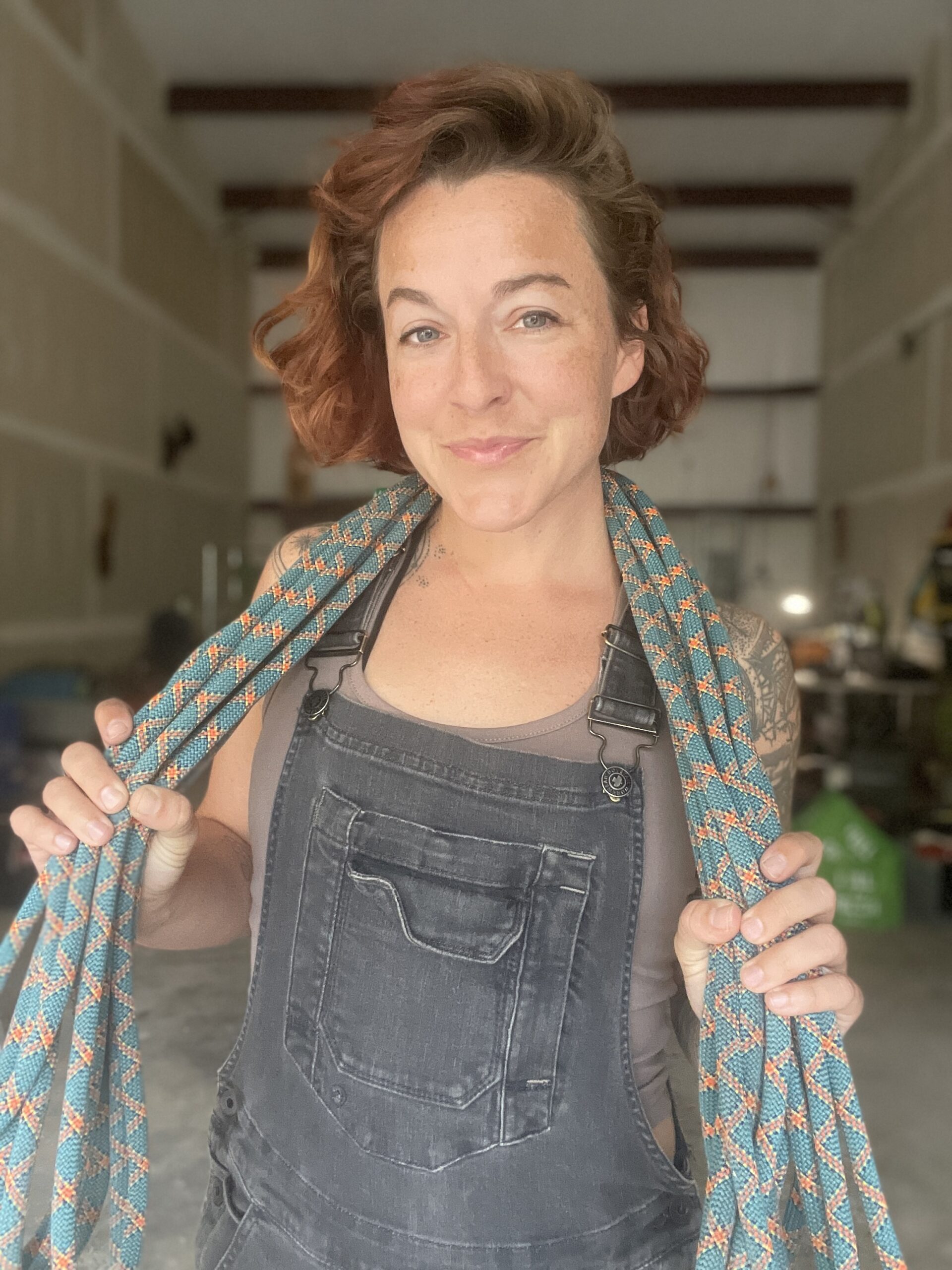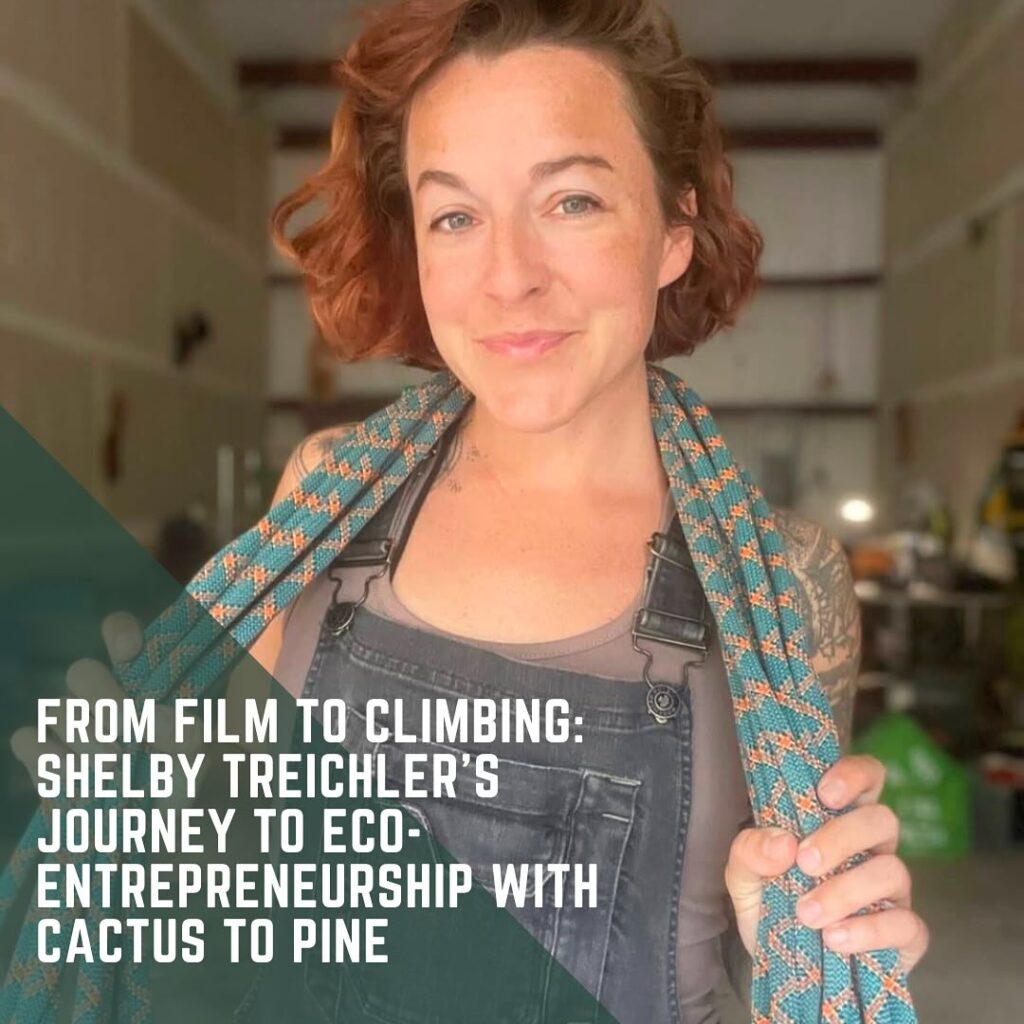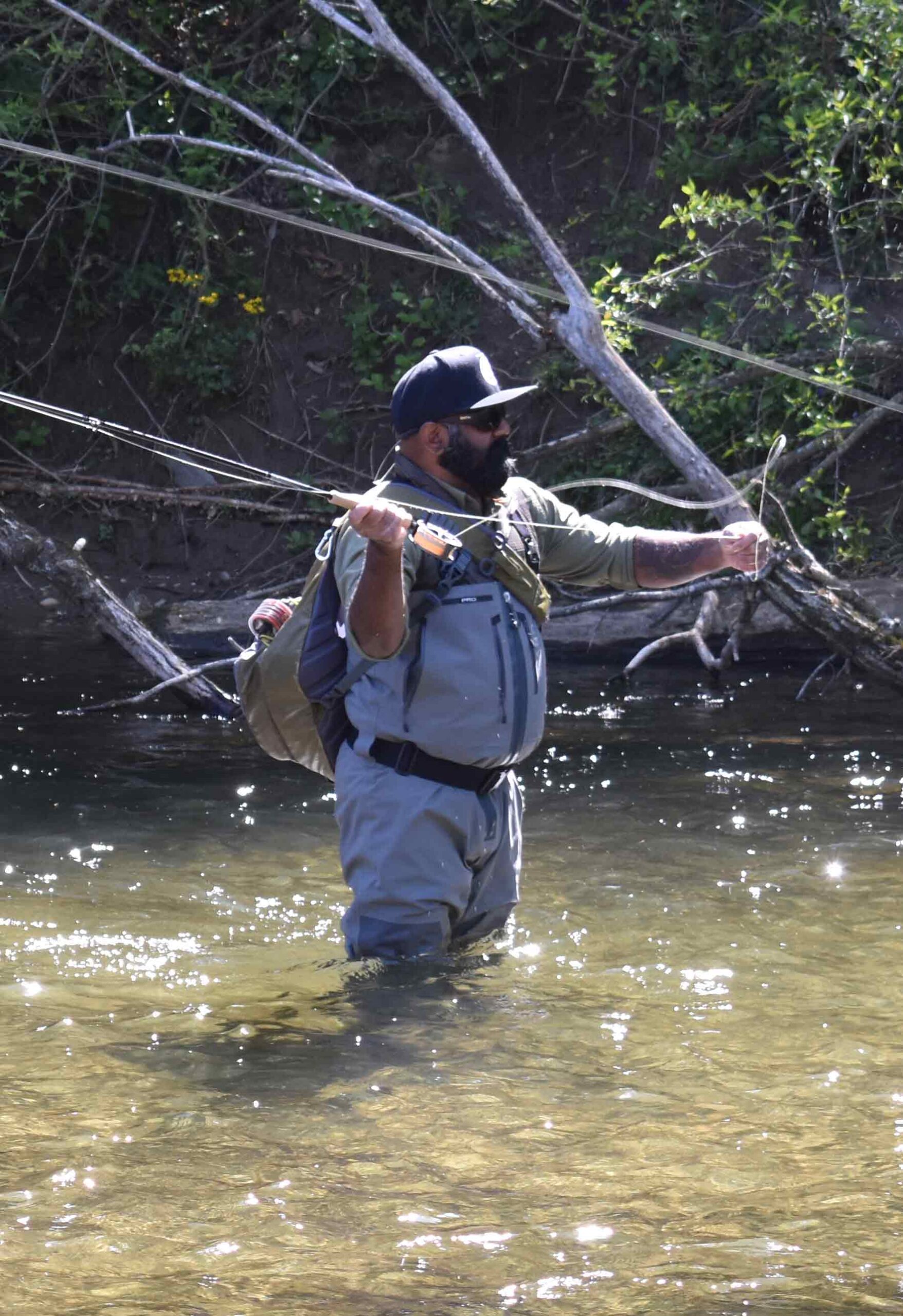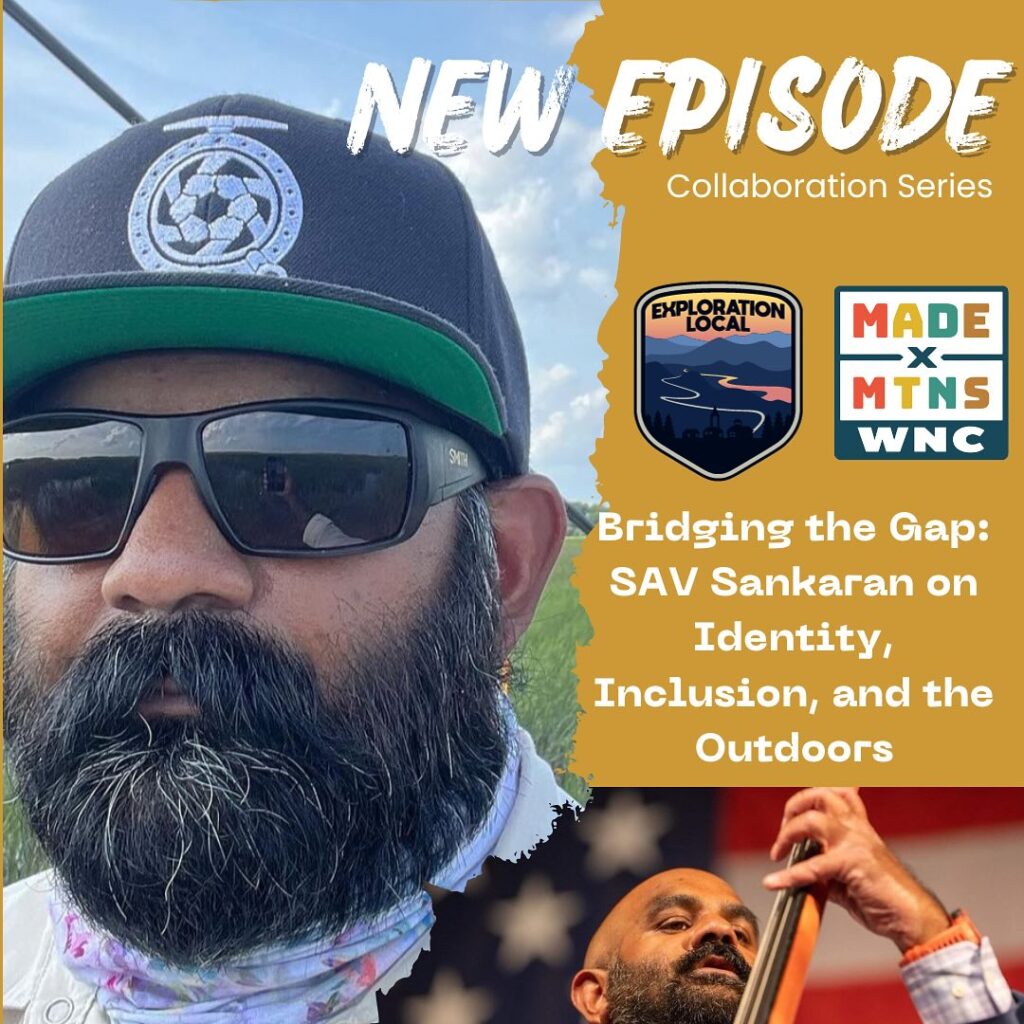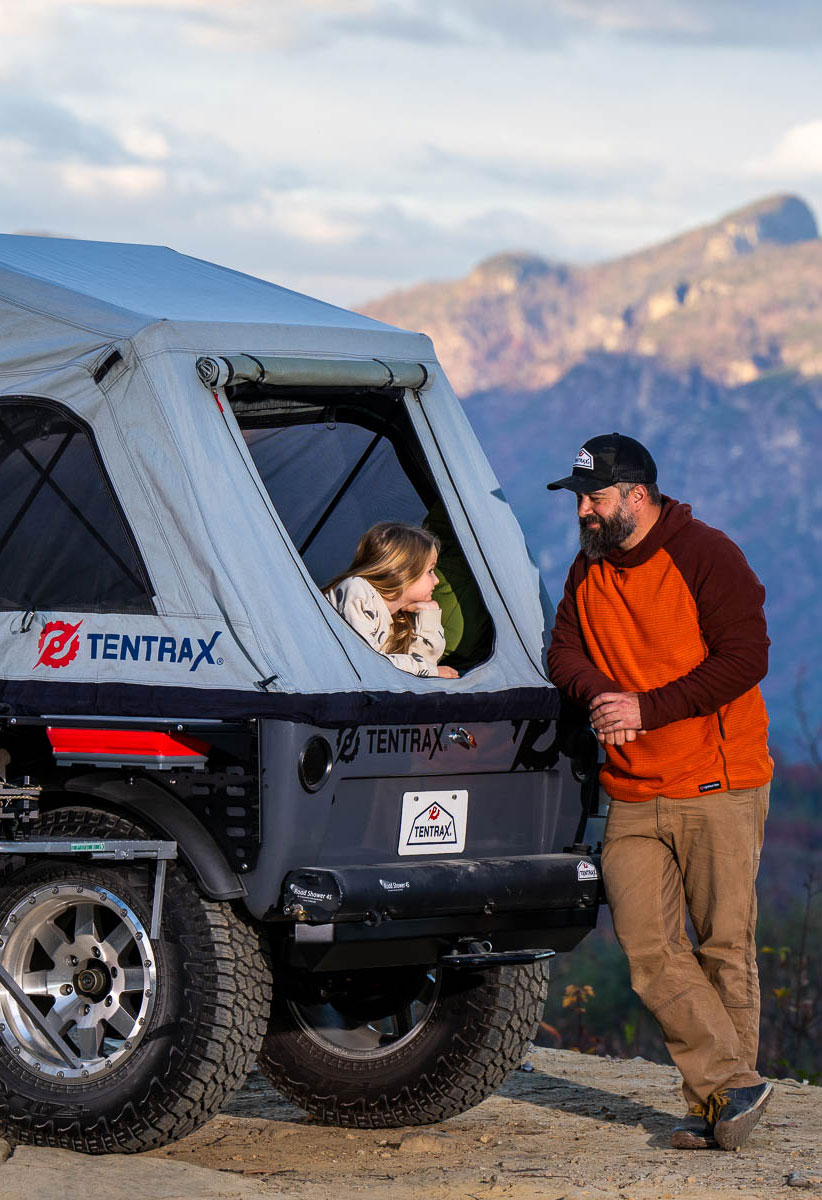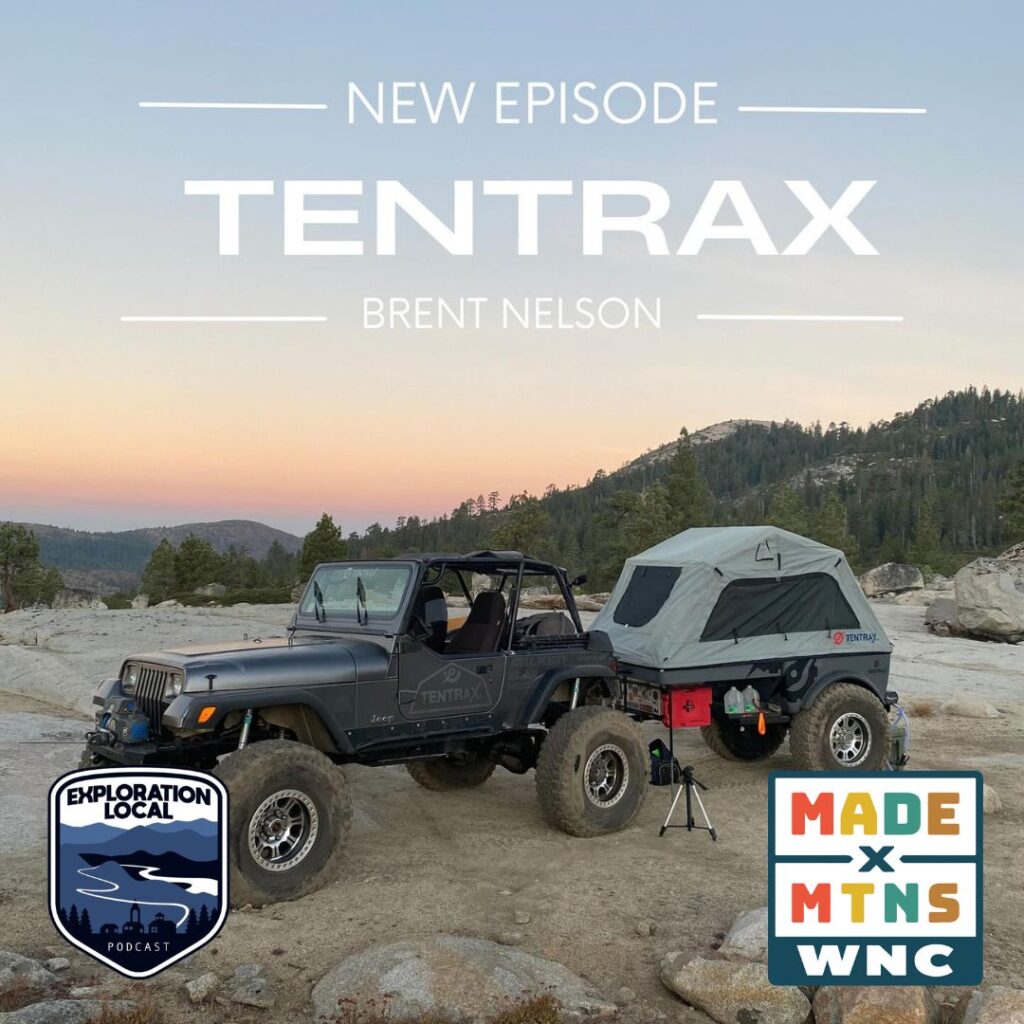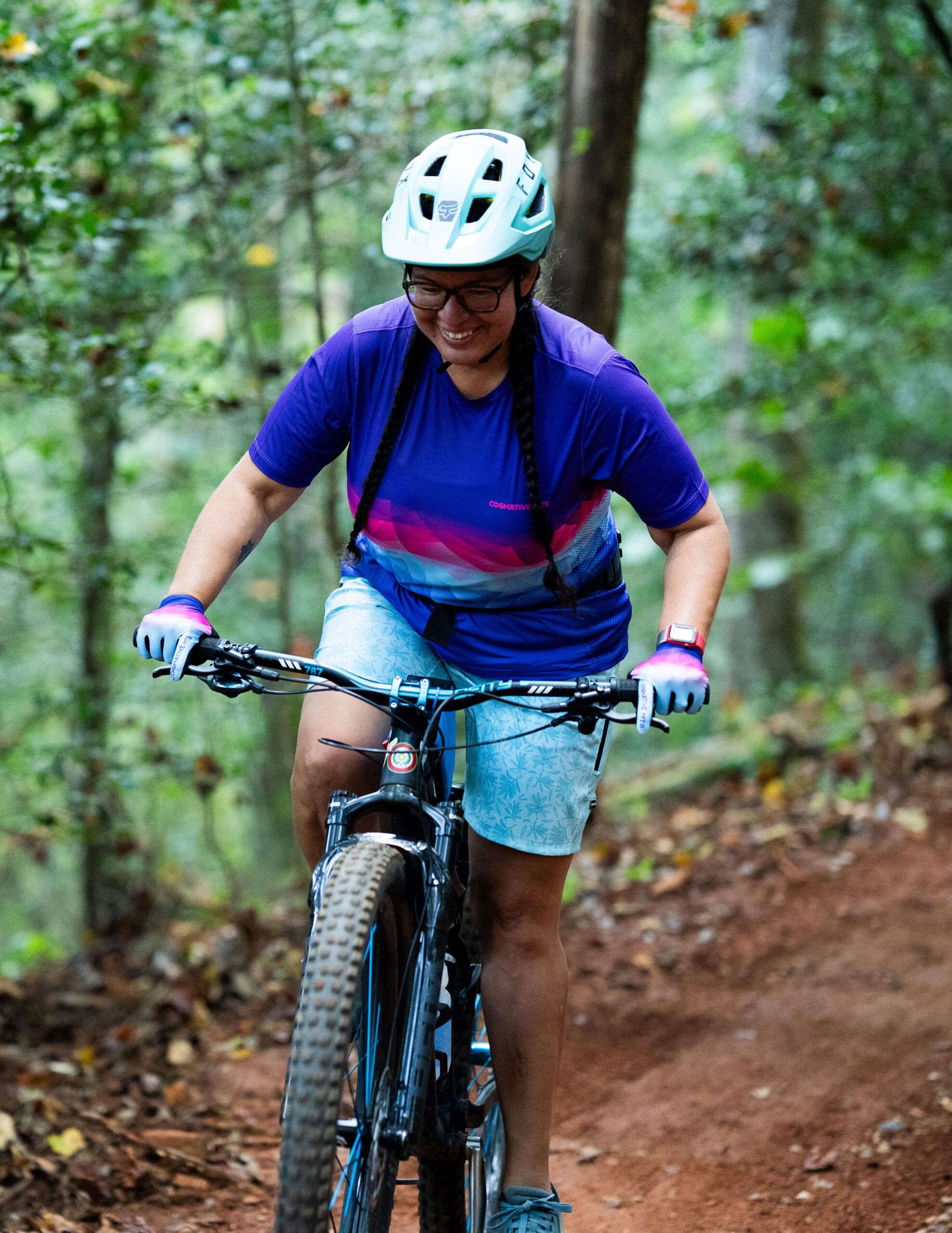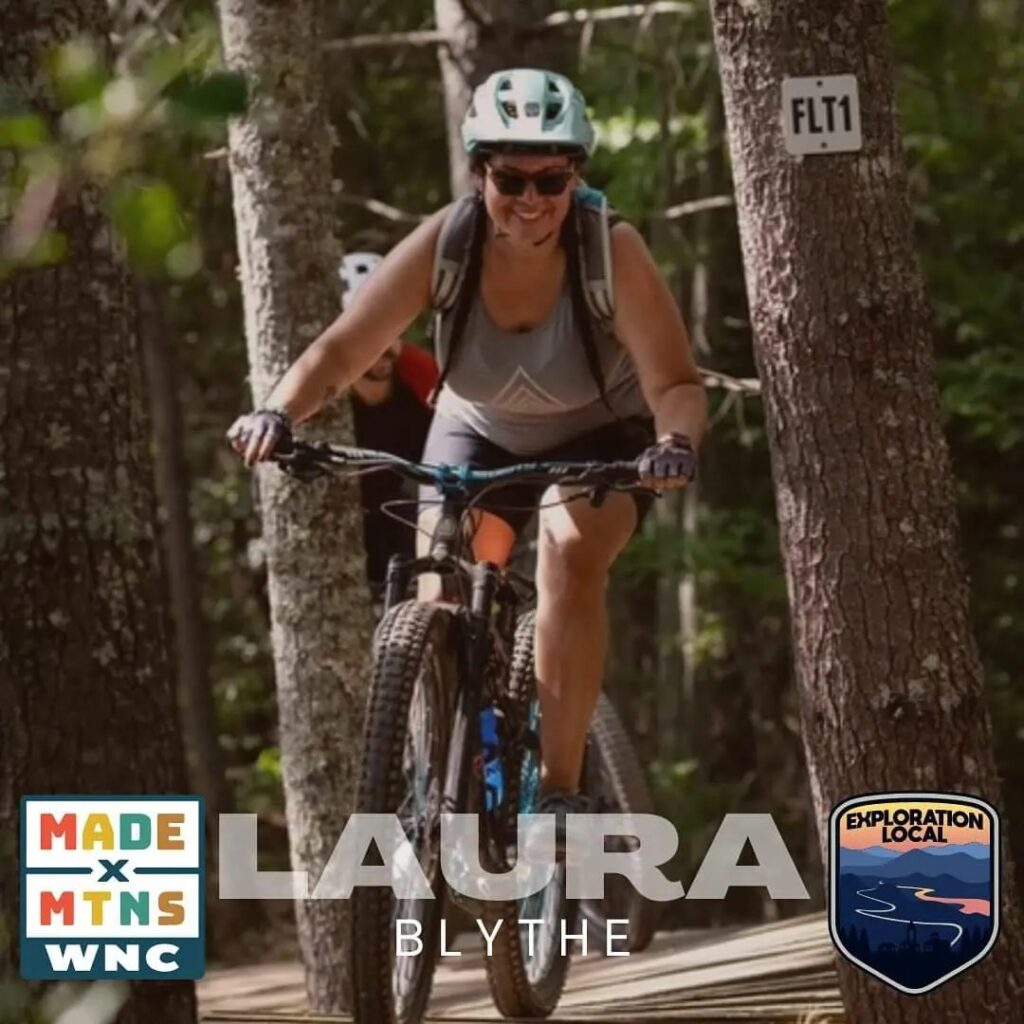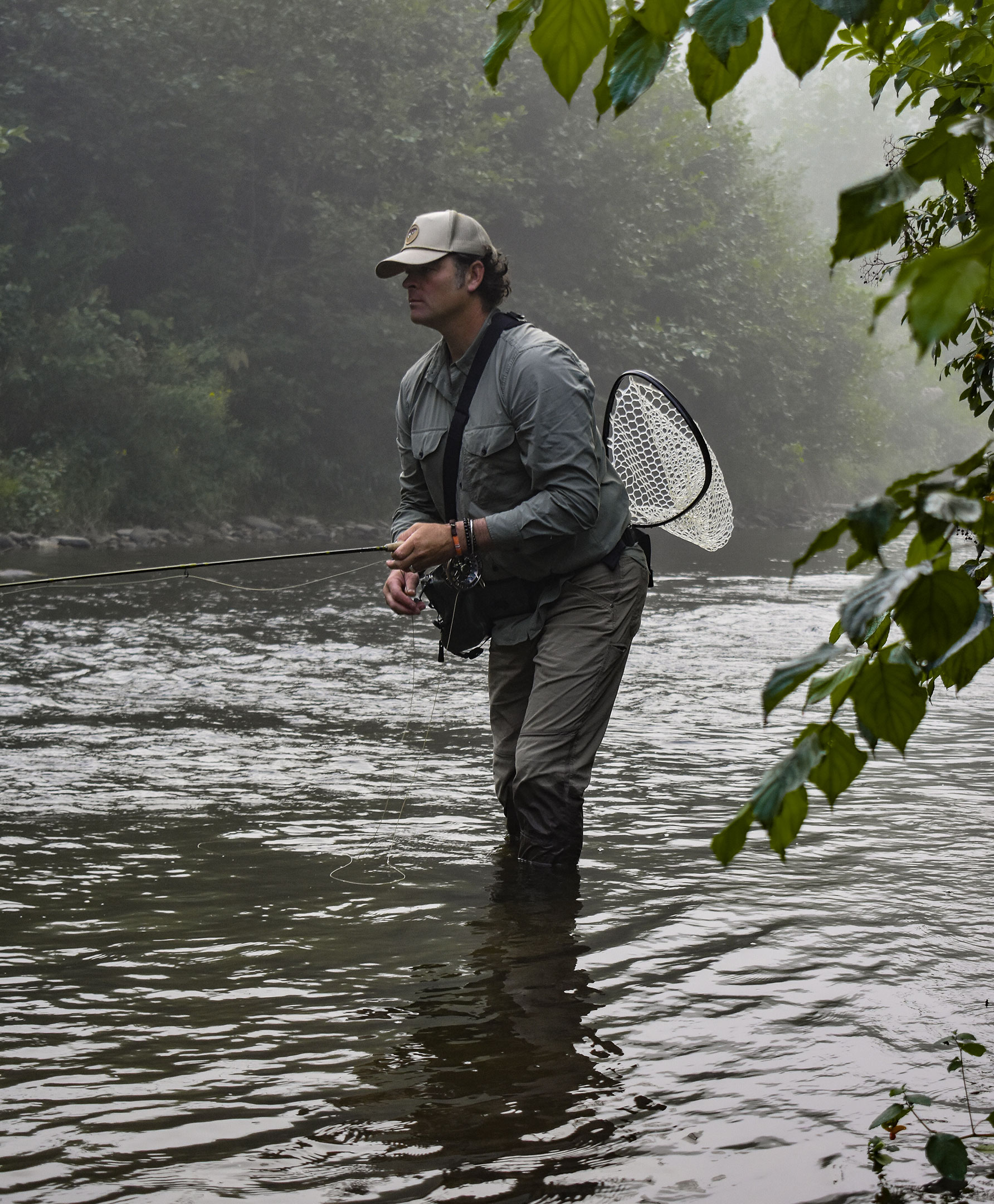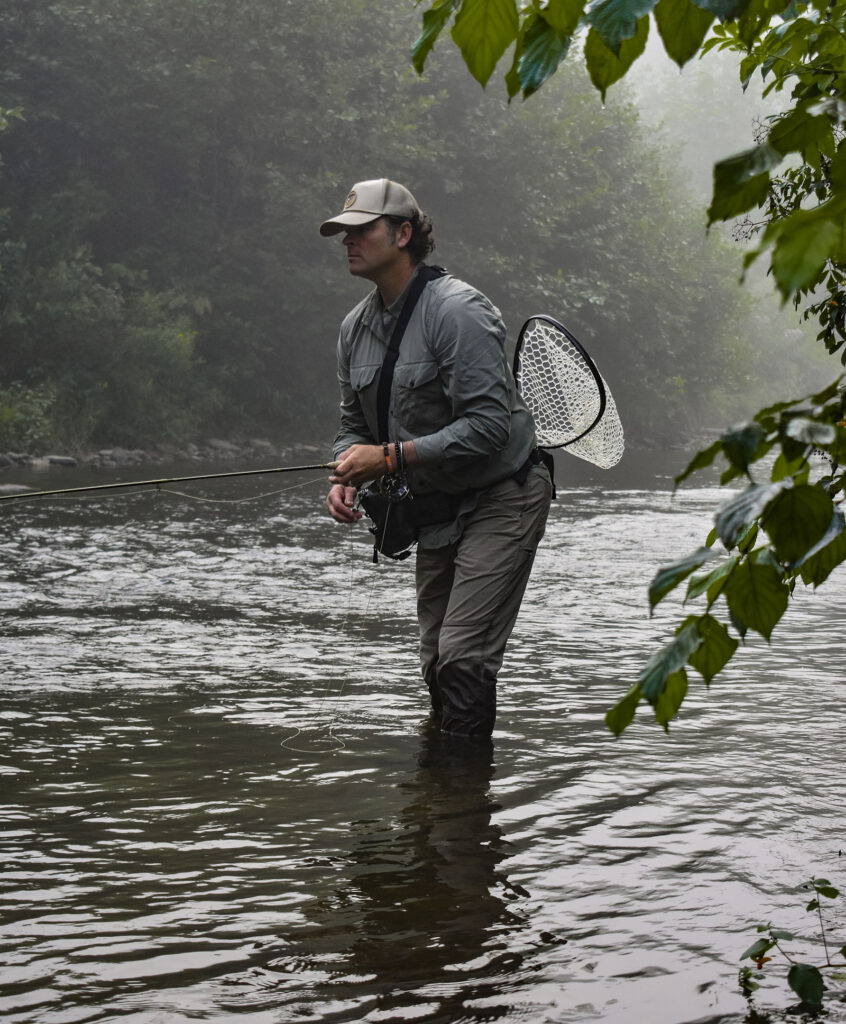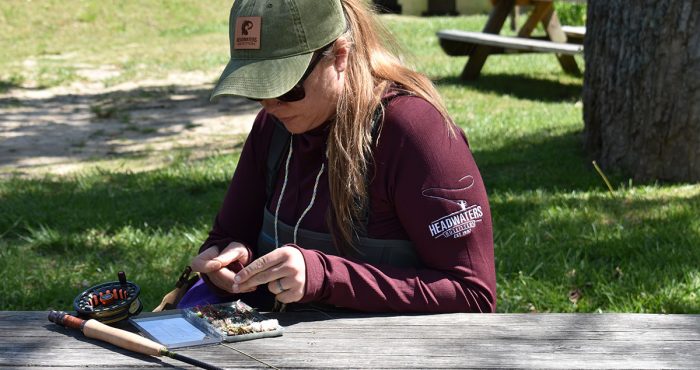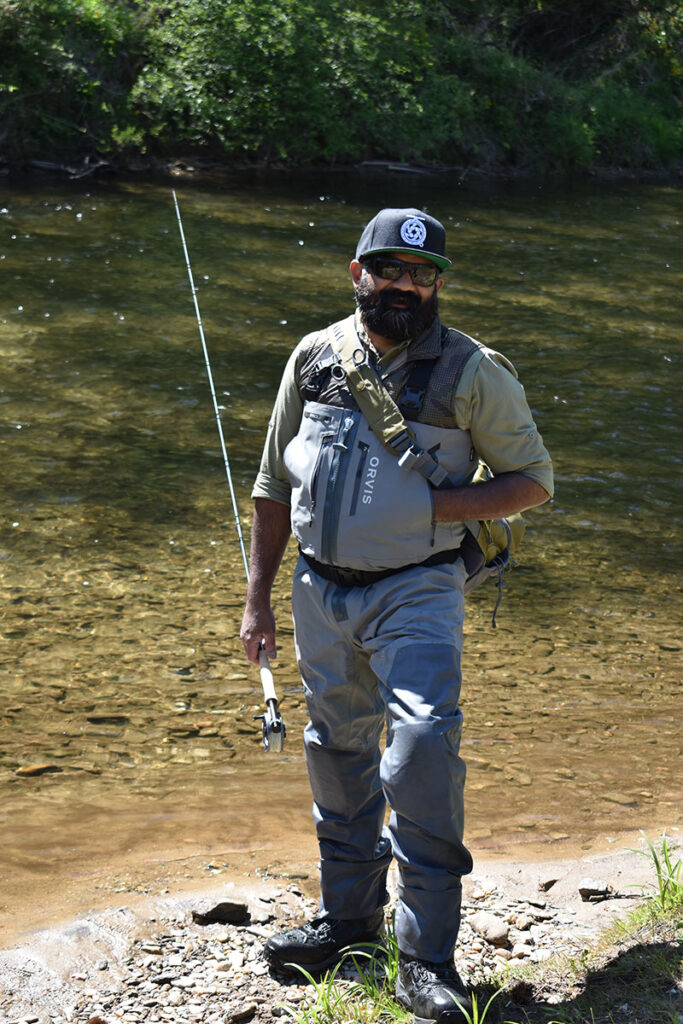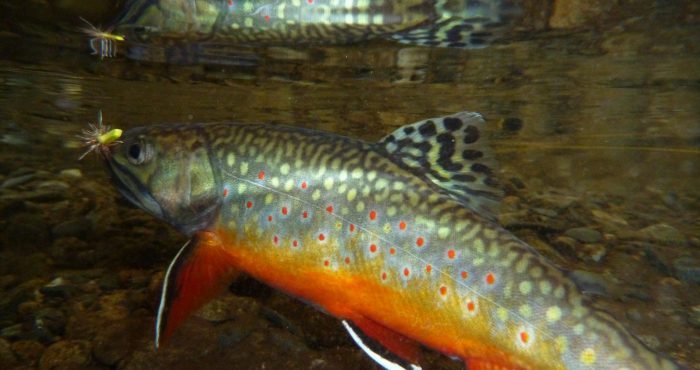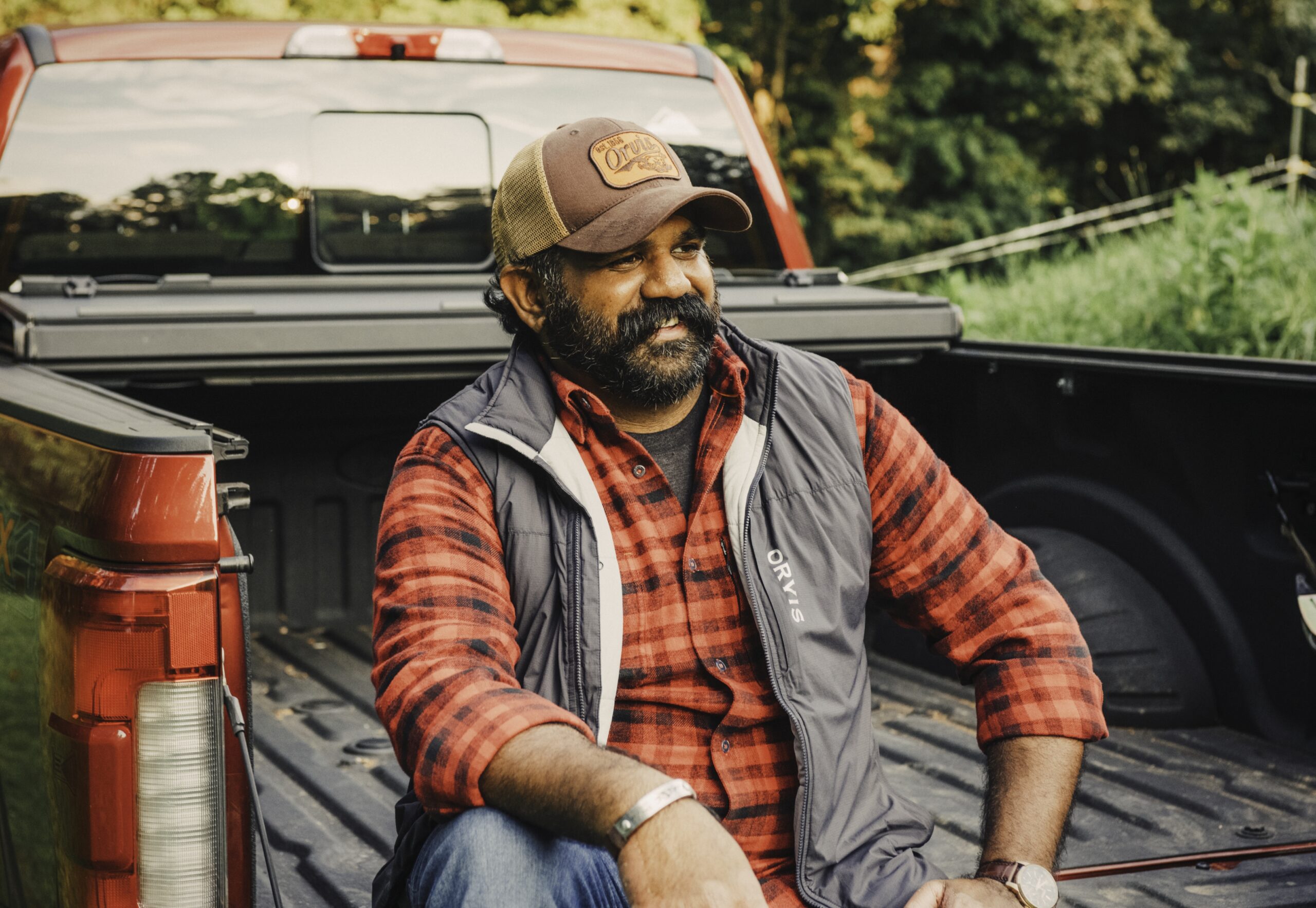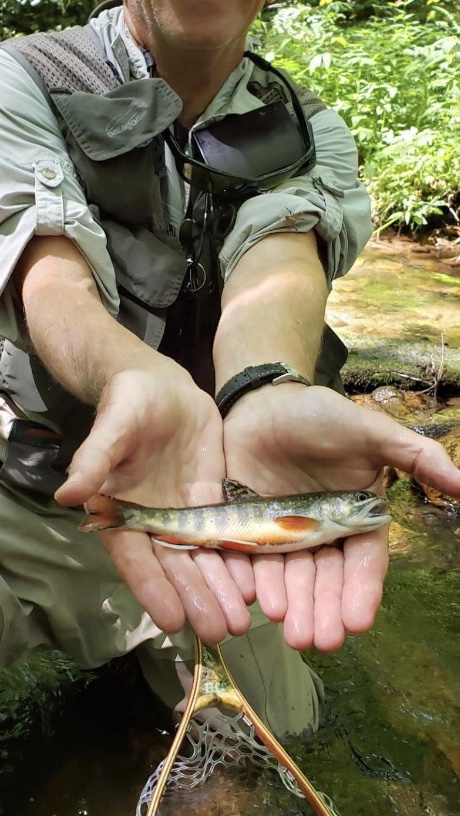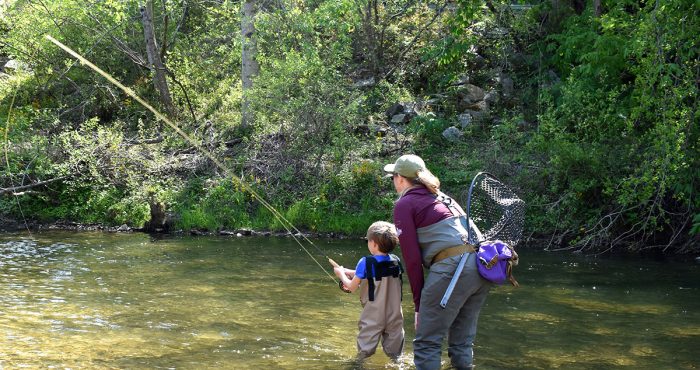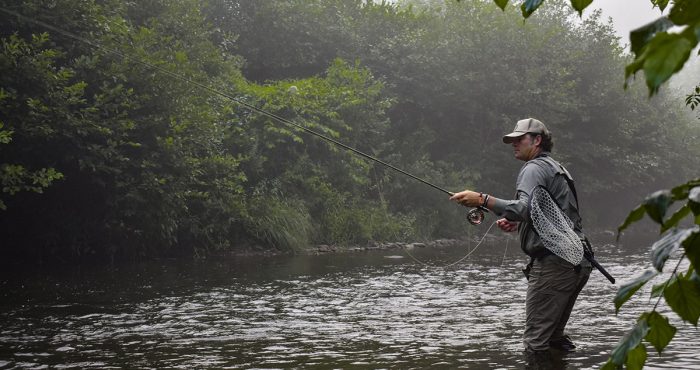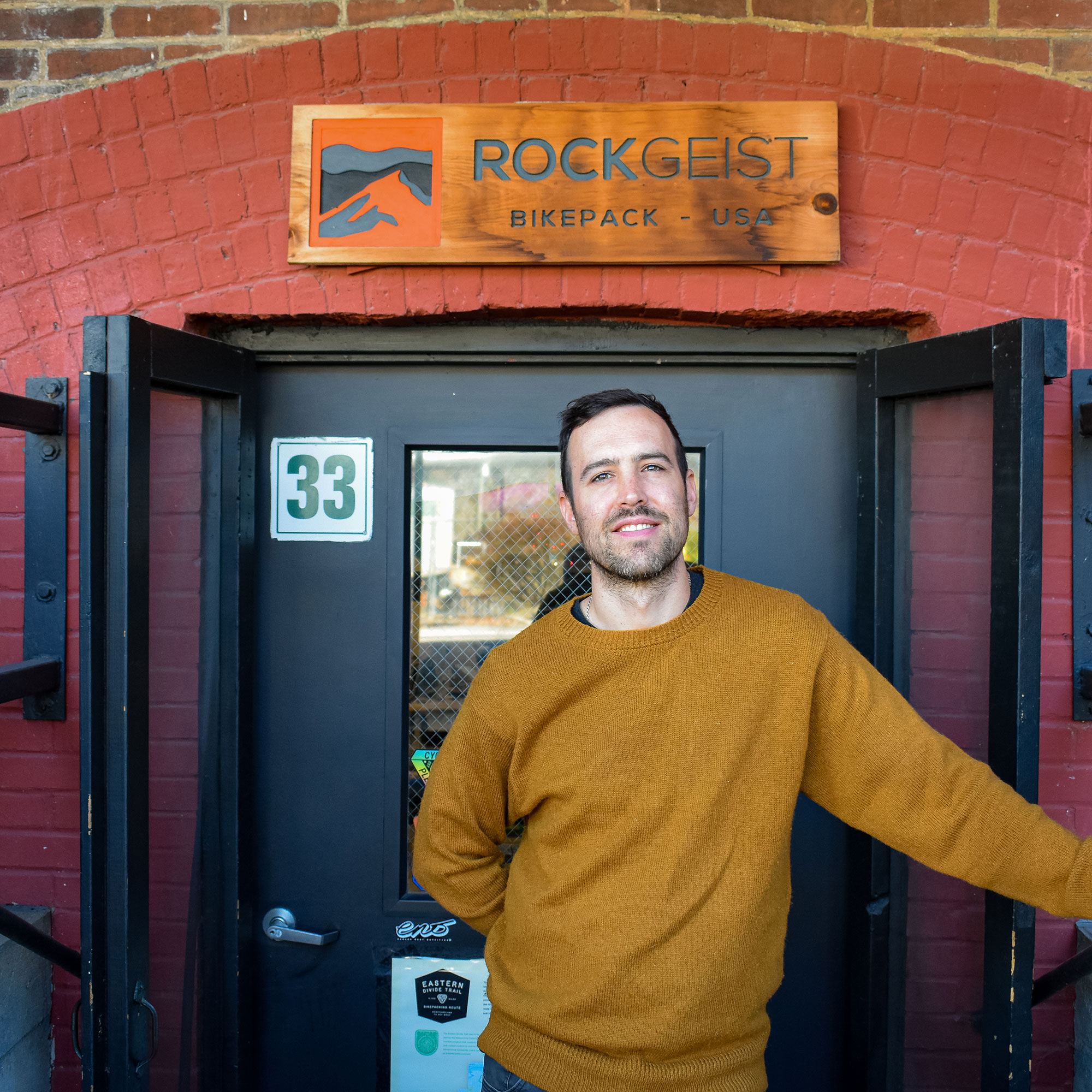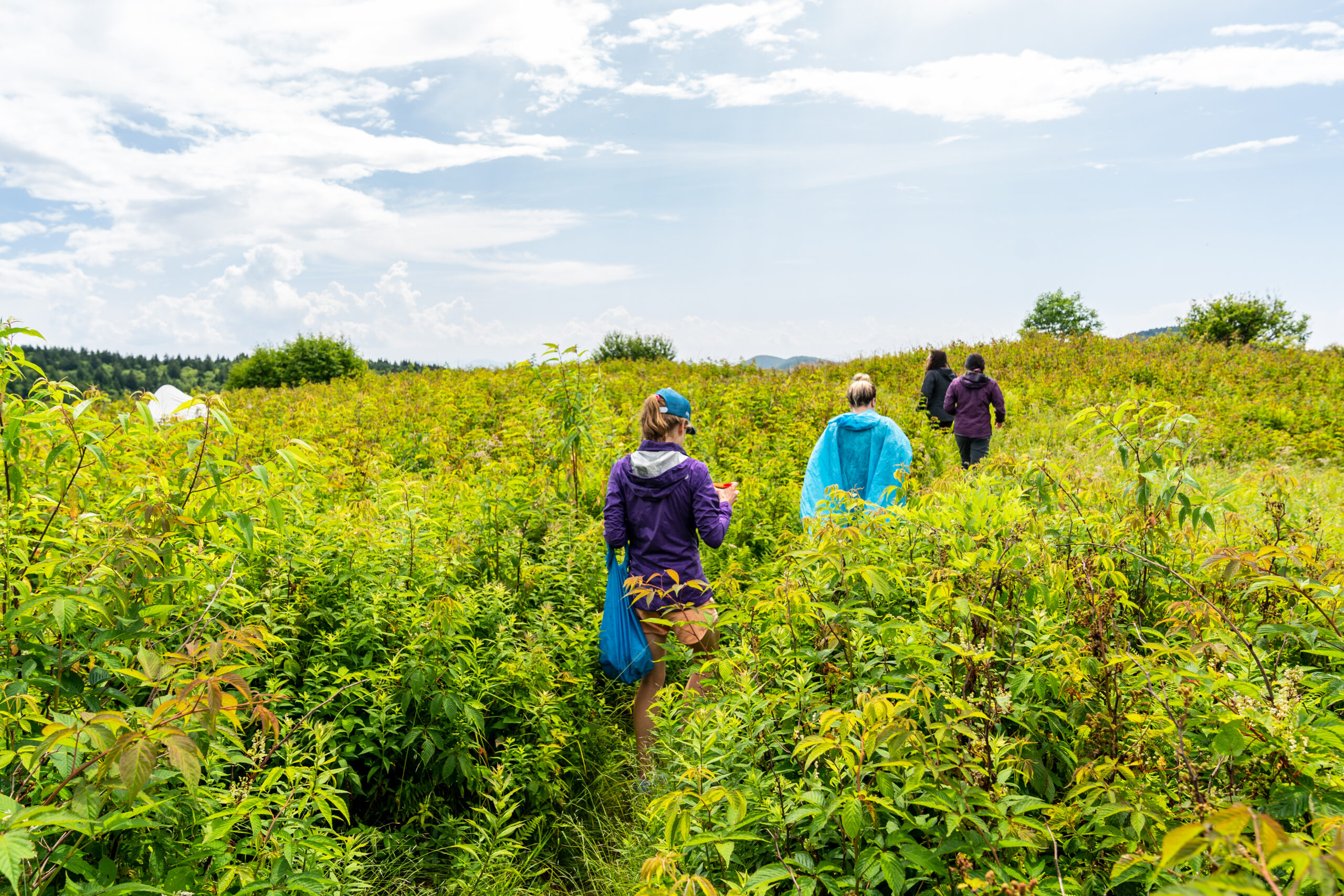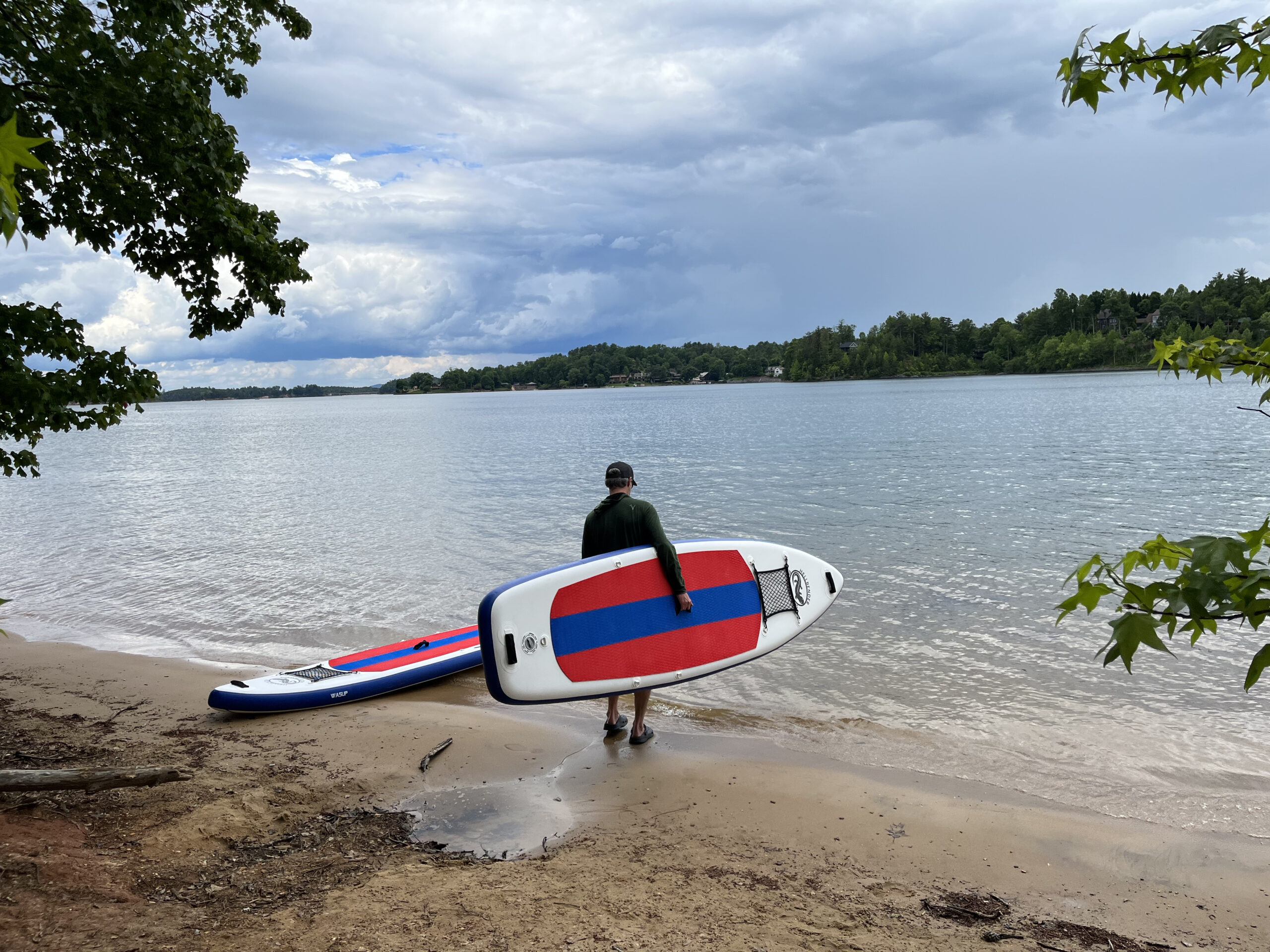Story Type: Industry
Sav Sankaran
Brent Nelson
Laura Blythe
WNC Fly Fishing – The Future is Downstream
McHone Performance Training
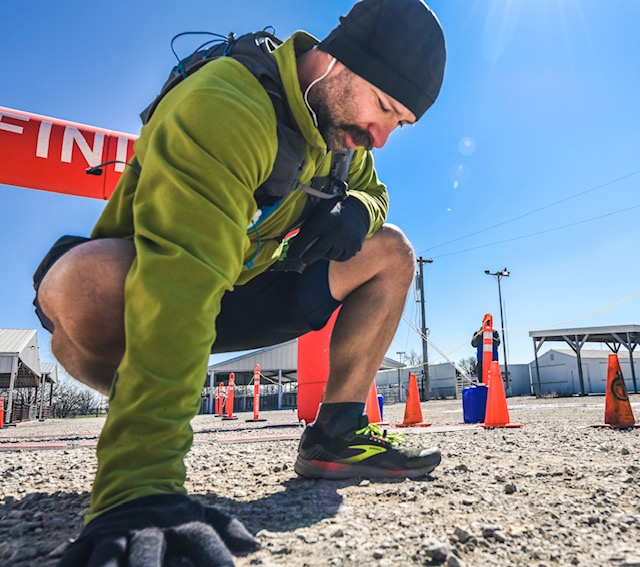
MADE BY MOUNTAINS MINI STORY
Steven McHone
In these mountains, I have played in soil, been cut by brush, cried on ridges, and found comfort in rhododendron tunnels and streams. These mountains taught me to walk, run, ride, swim, climb, love and grow as a person. Now my family and I share adventures in these mountains making a lifetime of memories.
Steven McHone — CoFounder of McHone Performance Training
Steven McHone and his family found their calling conditioning WNC’s outdoor athletes for a lifetime of outdoor recreation at
McHone Performance Training
Husband to Cofounder, Shona McHone, and father of two youngins, Micah and Gabriel,
Steven McHone is the Cofounder of McHone Performance Training in Asheville, NC. McHone Performance Training (MPT) provides Sport Performance Training for WNC’s outdoor athletes, including: cyclists, runners, climbers, paddlers, adventurers, weekend warriors, ultra endurance runners, ultra cyclists and enduro racers.
Steven McHone is an Asheville native who, for the last decade, has dedicated himself to helping his mountain community to stay fit for adventuring in Western North Carolina. As a certified personal trainer, nationally accredited yoga instructor, and a licensed massage therapist Steven, uses his unique skill set to help increase individuals athletic performance with their adventures in mind. His own adventures have led him to bike across the country from West Coast to East Coast and North to South, run the Rim-to-Rim-to-Rim in the Grand Canyon, and compete as a bodybuilder and physique competitor.
“Being born and raised in WNC, I have always called Asheville home. After living in a city for 4 years while attending college at University of North Carolina – Greensboro, I found myself returning to WNC most weekends to backpack, mountain bike, trail run and swim in waterfalls,” said McHone. “In 2011, the call of the mountains brought me back home permanently.”
“I believe that a time spent outdoors is a life well spent! When opening McHone Performance Training, I hoped to help my community to keep adventuring in WNC’s Outdoors for a lifetime.”
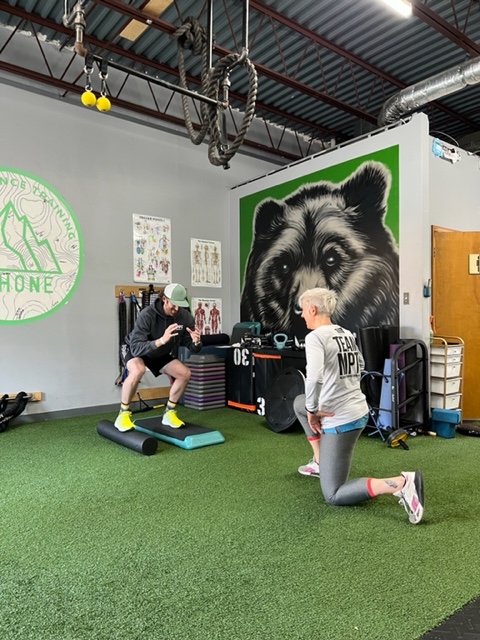
On Building Community as a Small Outdoor Business in WNC
McHone Performance Training is a grassroots gym built by outdoor enthusiasts for outdoor enthusiasts, delivering a unique style of training specifically designed for individuals with active outdoor lifestyles. New Squat PR’s are always nice, but feeling stronger and more confident while ripping down your favorite trails is what MPT is all about. The challenge is to get folks to dedicate time off the mountain to strength training, so that they can keep playing for a lifetime.
Team MPT loves being a part of the local mountain sports community by volunteering on the trails, volunteering at races and events, and also competing in many local races.
“I’m inspired by my fellow adventurers. It is an honor to be surrounded by so many inspiring mountain athletes. I connect with individuals who dare to dream big.”
Steven McHone
Looking Ahead
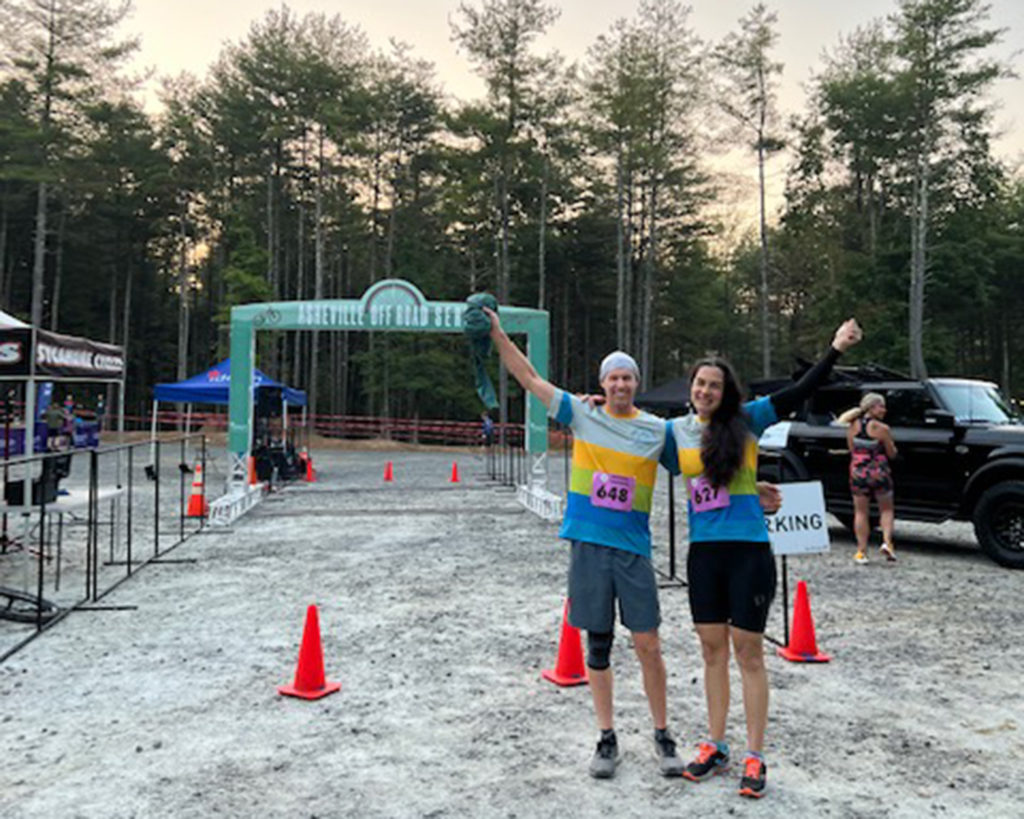
Steven currently enjoys his daily movement practice, backpacking, distance running and mountain biking as much as possible. All of his adventures in Pisgah National Forest have led Steven to refine various movements using his extensive knowledge of sports medicine, massage, yoga, performance training and corrective exercise. These experiences inform his coaching methodology for the classes offered at MPT.
“I’m stoked to see so many new faces in the Outdoors and I’m looking forward to seeing
how WNC grows together. An organization I’m excited about these days is Catalyst Sports, who specialize in bringing adventure sports to people with physical disabilities.”
Steven’s wife and MPT co-owner Shona McHone lives by the motto: “move, connect and explore.” She is an avid outdoor adventurer pursuing the world from the seat of her bike. She is passionate about fitness that leads to unmarked trails and paths, unleashing new possibilities within the body and spirit. She is motivated pursuing the ‘why’ in your fitness journey helping people to move in new and dynamic ways that lead to their most courageous self.
Together, Steven and Shona are building community through their business while providing a safe and efficient program to lead athletes through their optimal fitness goals to find success in athletic events and adventures. Inspired by the Western North Carolina Mountains, the McHones turn movement into medicine, and help clients on their path to success in achieving long term results.
Learn more about McHone Performance Training at mchoneperformancetraining.com.
Rockgeist Bikepack USA
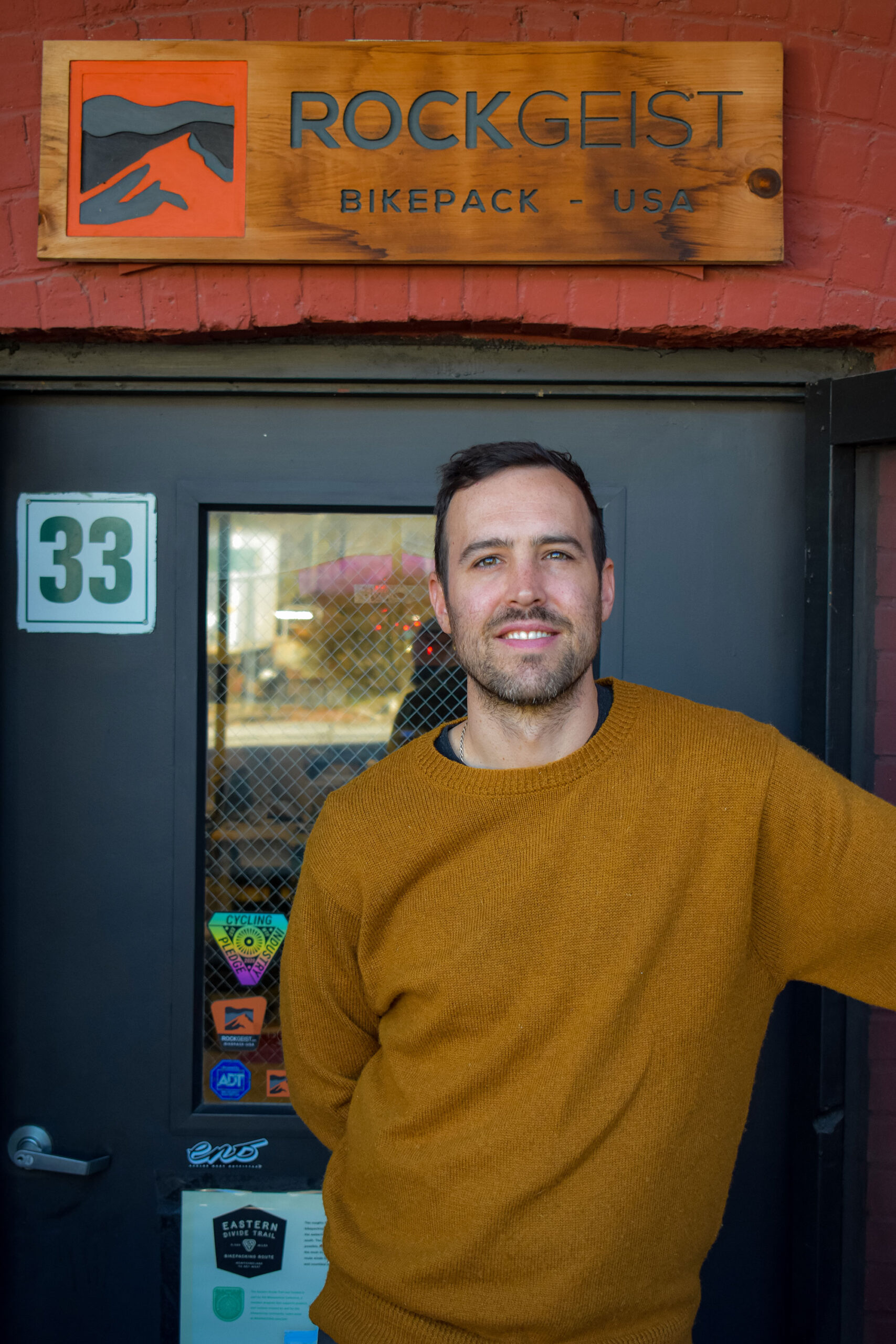
Made By Mountains Story
Rockgeist Bikepack USA
Asheville has been a key part of our success. It’s the mountains, the trails, the riding, but more importantly, the people here. Western North Carolina has such a great biking culture, and a rich history in textiles. Those are all the elements I needed to lean on to start and grow the business the right way.
– Greg Hardy, PhD., Owner
Rockgeist Bikepack USA makes quality waterproof and custom bikepacking bags, sewn in its workshop just north of Downtown Asheville, NC along the French Broad River. Greg Hardy, a medical research engineer with a PhD, founded Rockgeist in 2014 because he loved the simple act of riding bikes and camping. The company has grown as the niche of bikepacking has grown, and Rockgeist now has customers from all over the globe. Here, Hardy, and a few of Rockgeist’s loyal employees, discuss the nuances of small business, local bike culture, and their love of these mountains.
Expanding the boundaries of your bicycle travel
Rockgeist Bikepack USA
Rockgeist’s goal is to help you become more self-sufficient on your bike through gear defined by innovation, advanced materials, and made-in-USA craftsmanship. From its 2014 beginnings, Rockgeist has risen to acclaim in the rapidly growing bikepacking sport, making their mark with their “photo fit” custom build technique that tailors specific fitting gear for cyclists worldwide.
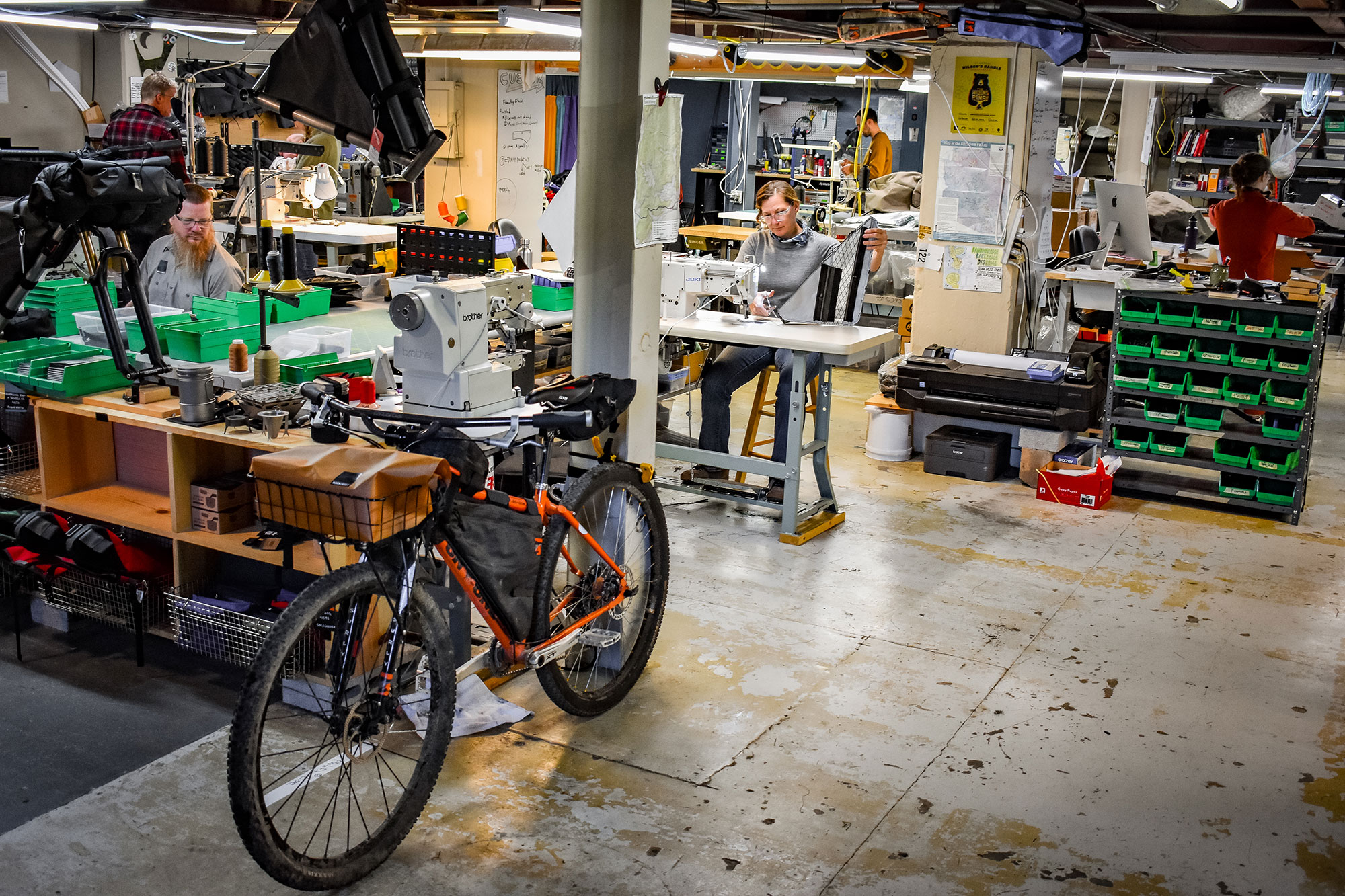
On Finding Western North Carolina and Founding Rockgeist
I first came to North Carolina to Durham for grad school. I kept driving out west to Asheville, and the Brevard area for the biking scene. That’s when I saw the mountains, got exposed to the towns out here. After grad school I made the transition to move to Asheville instead of driving here every weekend.
Originally, I was doing this part time after work in my apartment. We had 300 yards of fabric in the kitchen and machines in the living room. I like the autonomy of running a business and having the freedom of what we’re trying to build from the ground up. I also wanted to find a way to contribute to the bikepacking scene. Through gear and materials, it was the best way for me to be involved with the community and help encourage other people to get out and try bikepacking for the first time and have the type of experience that drew me into the sport.
The workshop opened in 2017, and I knew I needed to hire someone to grow the business. My first employee was one of my first customers, Eric. He came in one day and saw what was going on and offered to help. Hiring that first person was probably the biggest step.
On Collaboration and Innovation
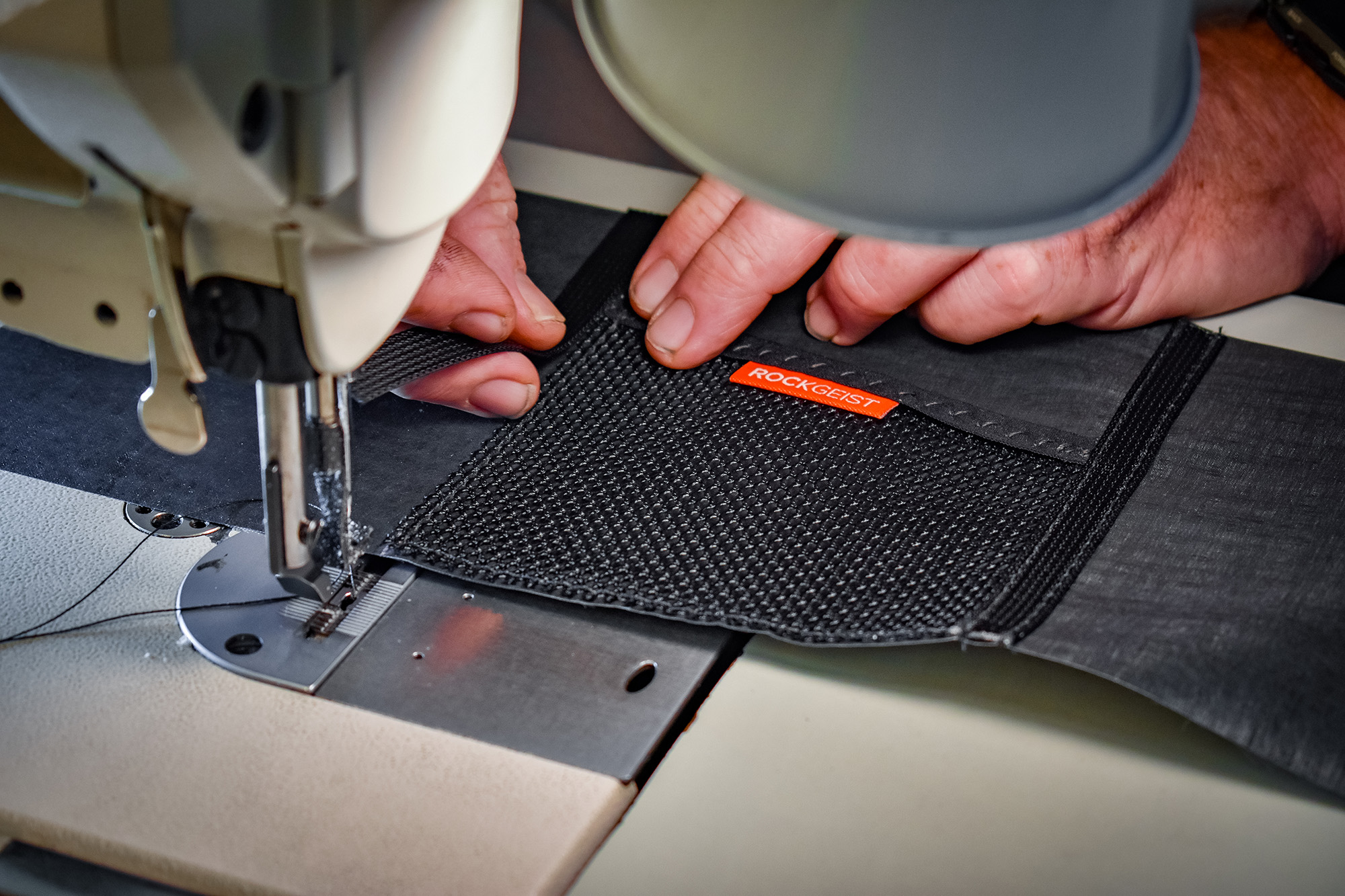
Collaboration with all of the small and larger businesses in Western North Carolina is a huge benefit to being located here. There are a lot of more mature companies in textile and manufacturing that I’ve definitely leaned on and gotten great guidance from. When Rockgeist was young, I enrolled in the Waypoint Accelerator Program. We were working through the process of running a business and growing, finding customers, working on a website…all of the things you have to do to get out in the world. I had no experience running a business before, but with the Waypoint Accelerator Program, I was in a group of nine other small business owners trying to figure this thing out. We had some commonalities, but we were coming from different perspectives and were able to lean on each other and find ways to solve problems in different ways.
When we first started, the thing that really put us on the map in the bikepacking scene was our PhotoFit process for custom frame bags. Rockgeist specializes in custom frame bags for the bike, different ways to carry gear on the bike. One of the core elements of that is a custom frame bag. Before we started, that process involved customers tracing cardboard cutouts of their frames and mailing them to bag makers. We created a process called PhotoFit, where bikers can take a strategic photo of their bike, and we can take that photo and add the customization and features that the customer wants. That process has expanded our customer base to a global level.
Collaboration with all of the small and larger businesses in Western North Carolina is a huge benefit to being located here. There are a lot of more mature companies in textile and manufacturing that I’ve definitely leaned on and received great guidance.
GREG HARDY
On Growing Through a Pandemic
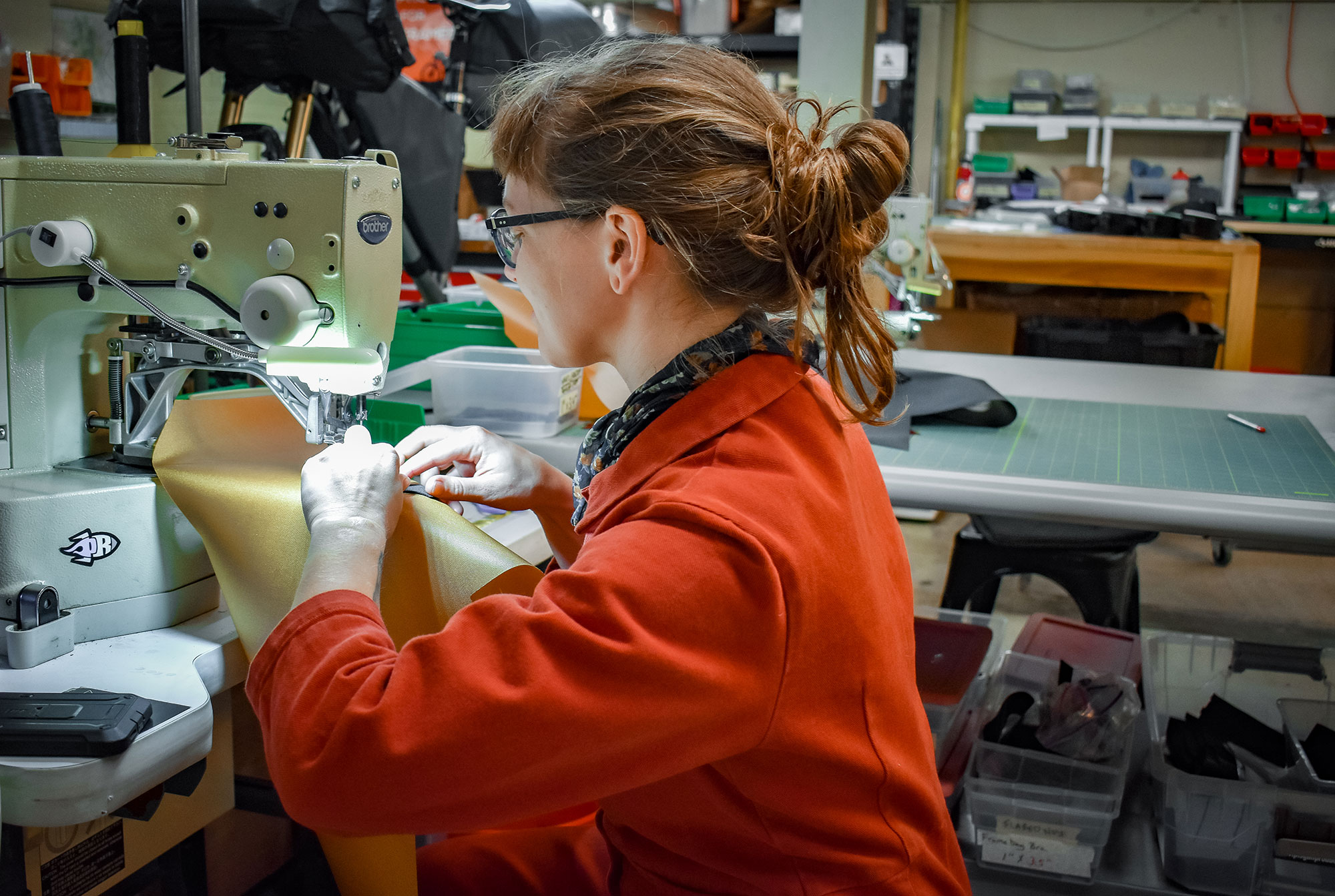
Dealing with the supply issues in the last few years has been a headache, but fortunately we’ve been able to rely on other companies in the Outdoor Gear Builders of WNC with those supply issues. Whether it be buckles, zippers…all that stuff that we took for granted four or five years ago, it’s a headache now. Having fellow companies to lean on in a network to navigate us through today’s challenges has been key.
The Outdoor Gear Builders is a group made up of a lot of different companies with different perspectives. We’re fortunate enough to connect with all of these owners of other businesses. In our early years, we definitely relied on OGB, because we only had two or three people here. We leaned on that collaborative aspect as other businesses in the area had equipment or systems we could leverage to help develop our products.
As a small business we’re reliant on other companies to help us solve challenges. Sometimes it’s sharing the work load, contracting work out that doesn’t make sense for us to do but still needs to be done. It opens up our time to spend on our specific product, where we don’t have to do some areas of work that we’re not set up to do. Having that relationship where you can talk face-to-face with local people, accelerates that collaboration and allows us to get a lot out of these relationships.
On Encouraging Bikepacking
The growth of bikepacking has definitely surged, and I hope it has become more accessible. One of the things we’re doing to encourage that is our rental gear program. If you don’t have the experience and want to talk to someone face to face about the right gear to put to put on your bike, we’re here for you. And you don’t have to purchase, a $600 kit to get out. You can take some of our gear, rent it for super cheap, and it’s enough to get out on some of our local routes for a few days.
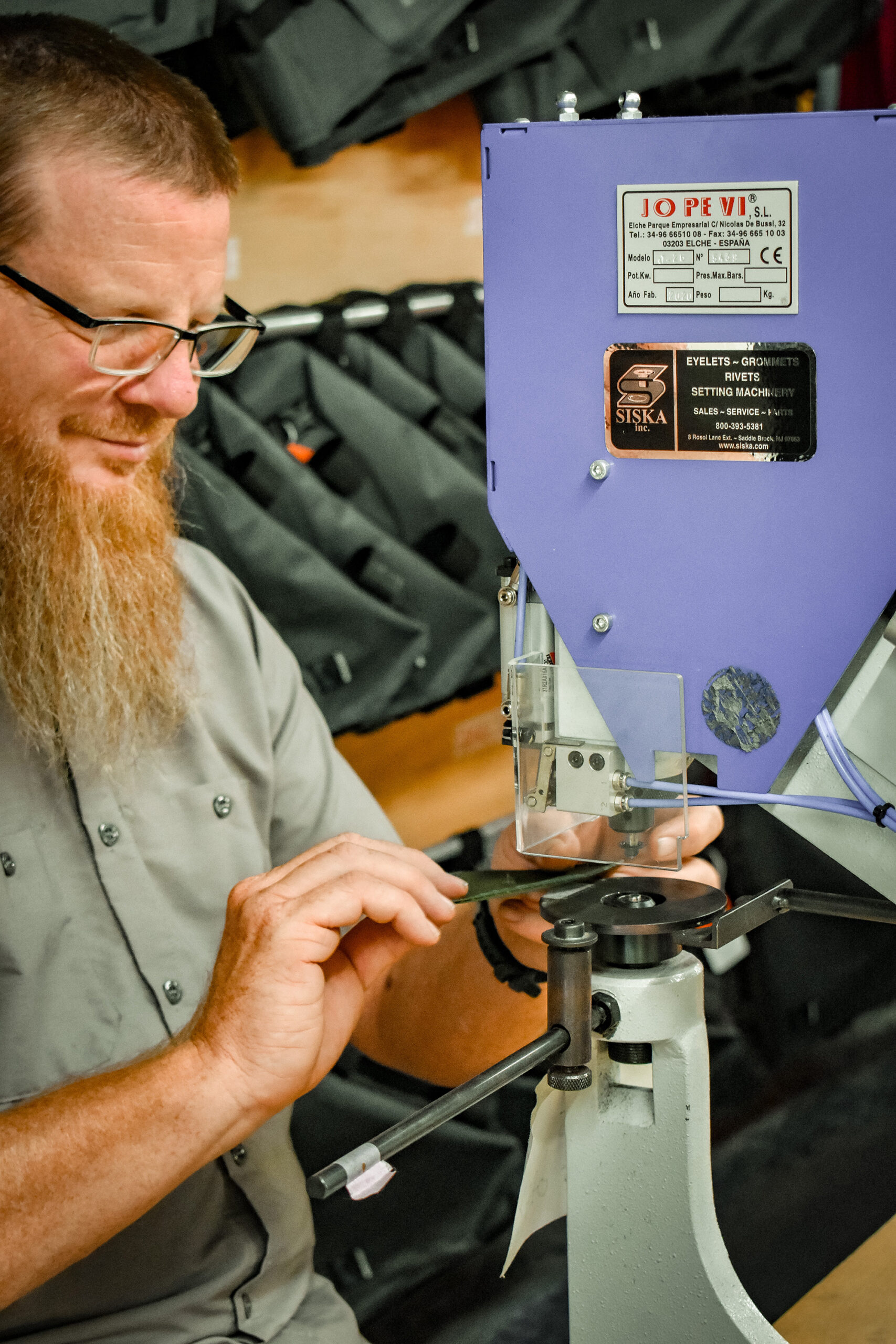
“Western North Carolina is a good bikepacking destination because the infrastructure is there. There are good gravel roads and good places to camp, so it’s fairly easy to tie things together and do whatever kind of trip you want to do.”
Greg Clemmer – Fabric Alignment Specialist,
On Being Made by These Mountain Communities
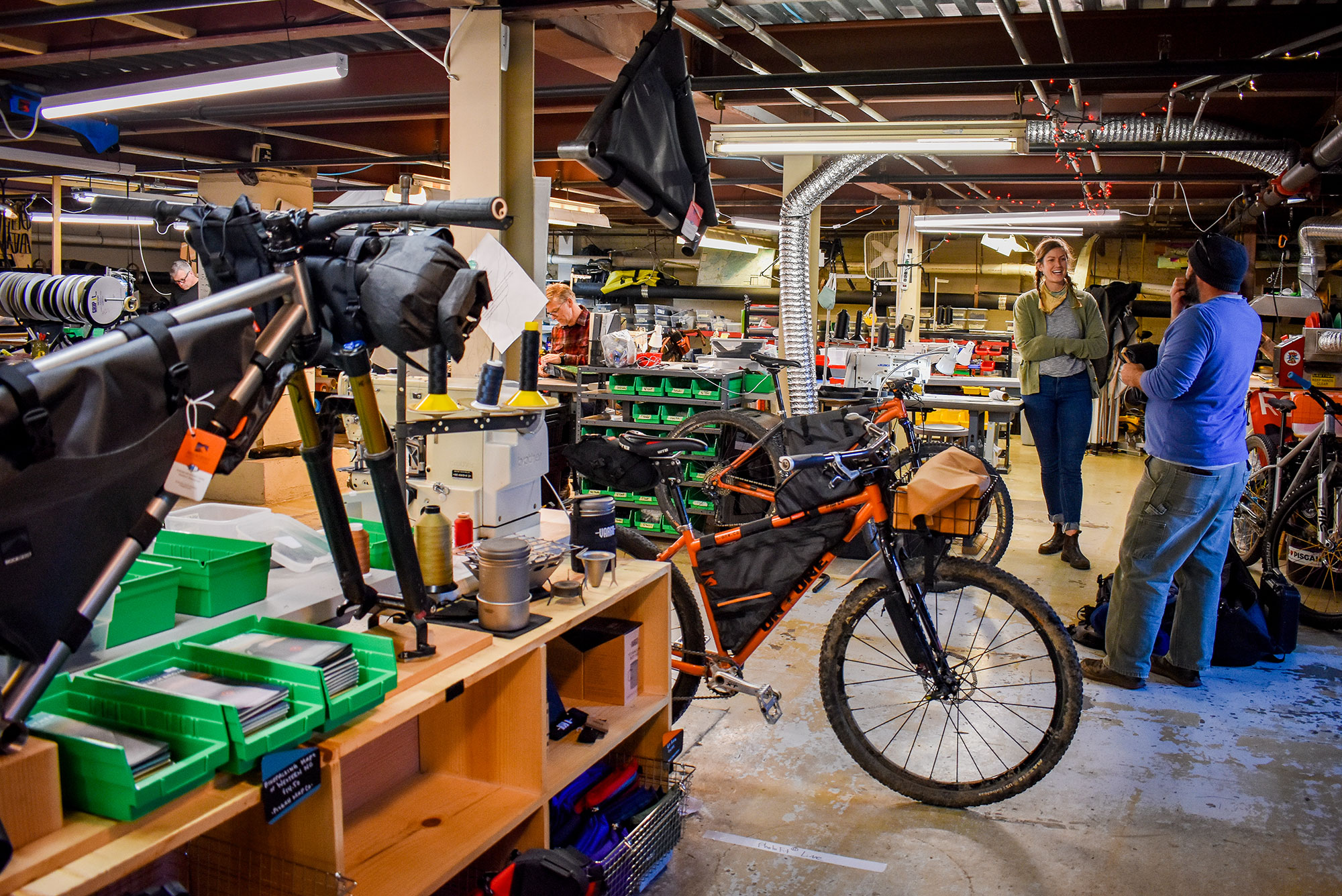
The mountains of Western North Carolina are our livelihood. They’re the pulse of our business. They’re what motivates us. They’re how we pay our bills.
Pisgah National Forest is special. It’s such a beautiful place. Sleeping under the canopies of the trees of Pisgah is magic. I like to go to Big Ivy, which some people call Coleman Boundary, which is out of the way, but I do a lot of townie rides too, finding as much gravel as I can to connect to a beer or to a sandwich, to see all the places Asheville has to offer.
Jen Weeks – Wholesale Specialist
Anytime you’re camping off of your bike, it’s a win. If you’re a hiker, and haven’t thought about bikepacking, this might be a great opportunity to get out and try something new.
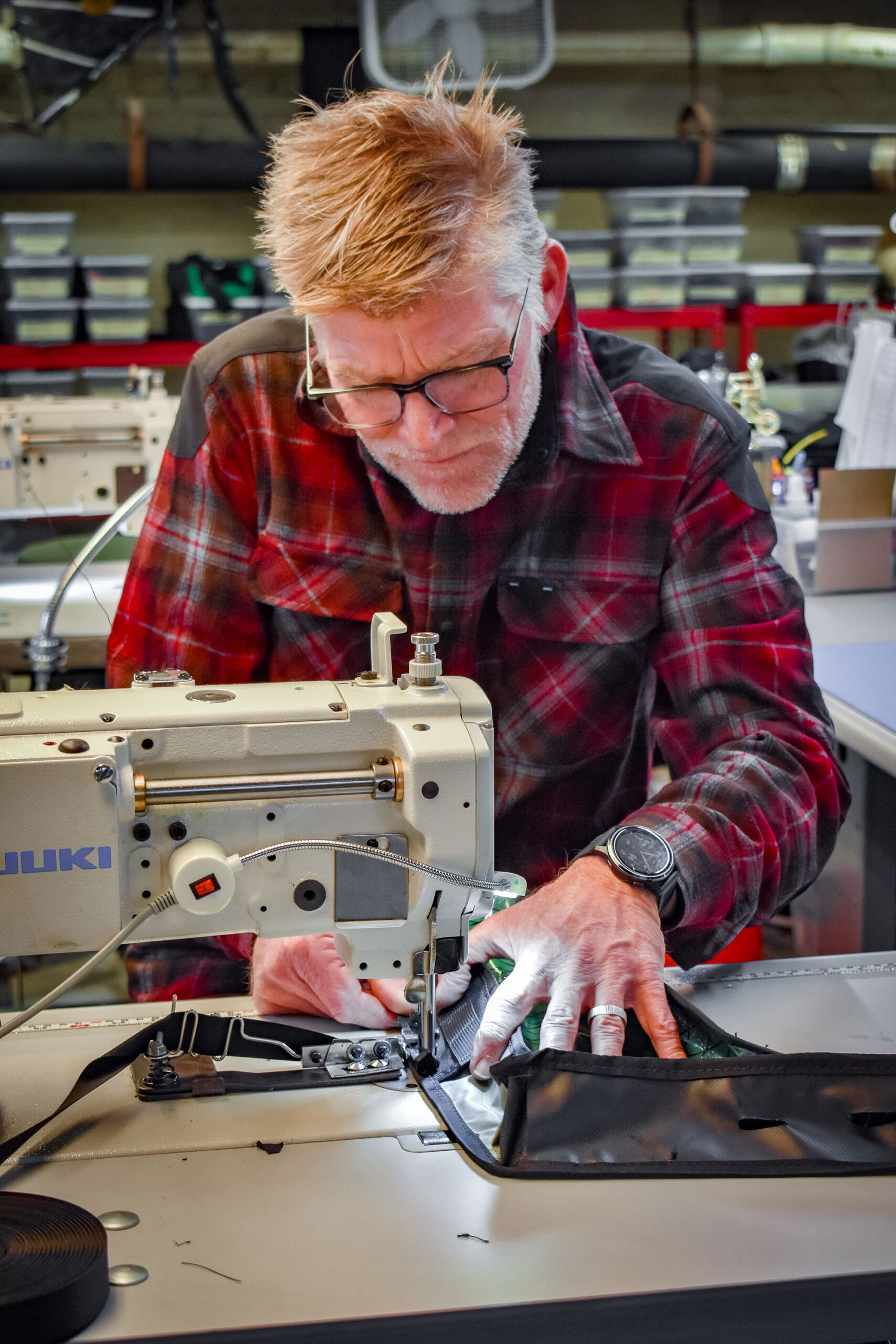
“A local group that’s doing awesome things is Asheville On Bikes. They’re working hard on expanding trail networks and greenways to connect the communities in our region. The Hellbender Trail is a good example, which will connect Brevard and Hendersonville and potentially up to Marshall. They’re also working on creating unpaved trails, which is a quicker way to connect a community without bringing in paving and construction. It’s a faster way to connect communities by bikes.”
Tim Bateman – Customer Service Specialist,
These mountains are what inspires us to contribute to the community, and help people get out and experience the outdoors in maybe a new and different way with bikepacking. They hold tremendous networks of trails that can link different forests together, and you might find yourself in a new area you’ve never explored before.
Thanks to the Rockgeist Team for their time, hospitality, and sharing their story with us. Thanks to story writer, Graham Averill, and to videographer, Robb Leahy.
Content Creators Camp
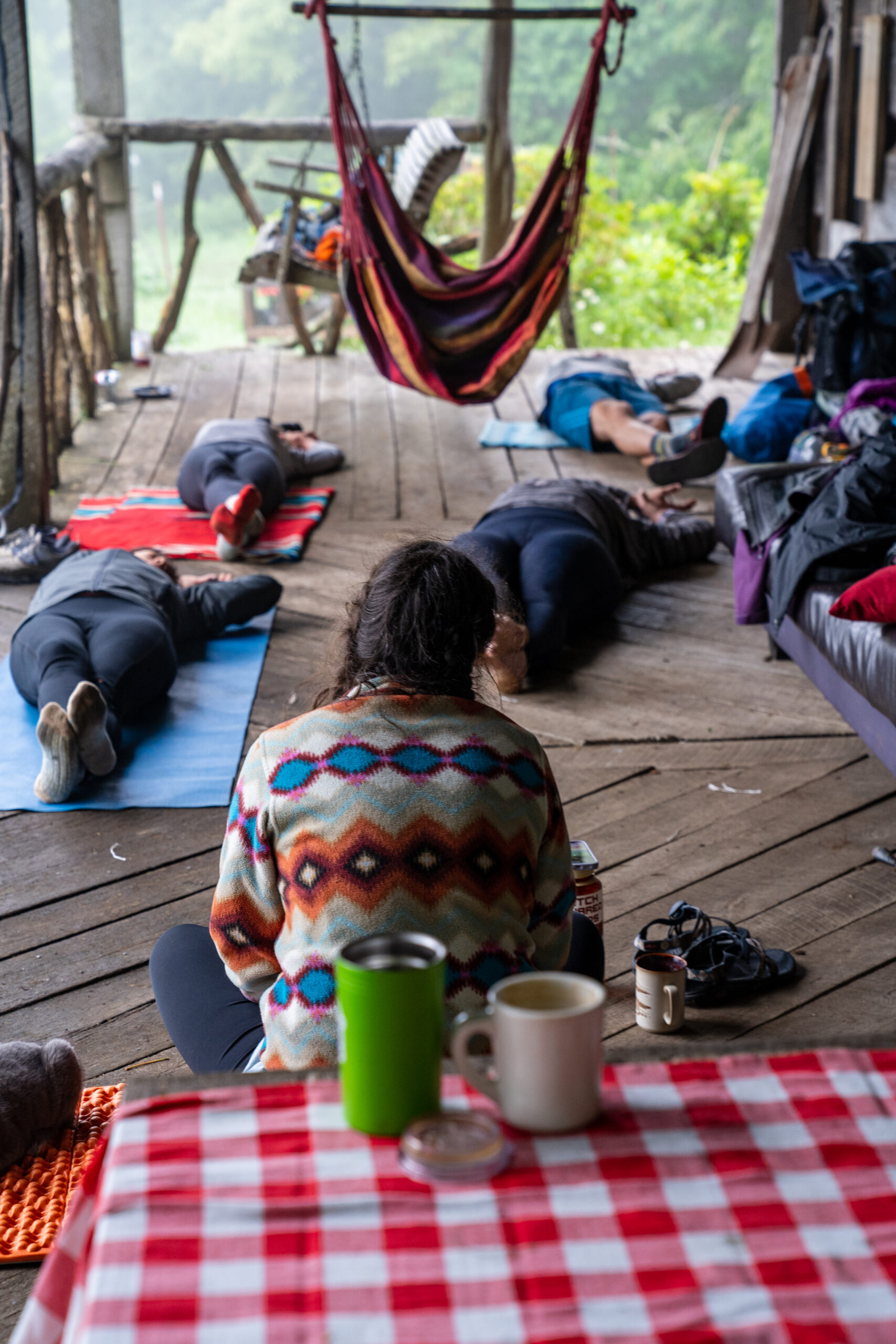
MADE BY MOUNTAINS MINI STORY
Content Creators Camp with The Appalachian Adventure Company
There is more interest in hiking and backpacking and outdoor adventure than ever, and a new generation of stories waiting to be told. And, without doubt, the better those stories are told, the more people will be in alignment with The AAC’s mission to share the stoke of adventure while protecting the planet – a mission I’m fully behind. Together, we decided to launch Content Creators Camp (CCC) with support from MADE X MTNS and Eagle’s Nest Outfitters, to help equip new and aspiring content creators with skills and vision, forged in the mountains.
By Shannon Davis — Former Editor-in-Chief of Backpacker and Climbing Magazines; Adventure writer; Content Strategy and Marketing.
The Appalachian Adventure Company paired up with Former Backpacker and Climbing Magazine Editor-in-Chief, Shannon Davis, to host the first
Content Creators Camp
The Appalachian Adventure Company’s Content Creators Camp hosted a masterclass-level experience in outdoor content creation July 8-11, 2022, with an overnight backpacking trip on the Mountains to Sea Trail followed by a two night stay at the rustic Cabins at Sandy Mush Bald. Participants had the opportunity to hone their skills around creating outdoor product photography and telling an authentic story.
I don’t know why I wore those knee-high gaiters. It was hot and humid near the North Carolina/Georgia line, and the well trodden trail was dry. Sunscreen or DEET would have been better protection than swampy Gore-Tex. But hey — I was on the first real backpacking trip that I researched and planned myself, and we were all just trying to look like the folks in the pictures we’d seen in magazines like “Backpacker.” On my second “big” backpacking trip, we started late from the trailhead at Grayson Highlands State Park in Virginia, hiked into the dark, promptly got lost, futzed with our seemingly impossible tent and stove by headlamp, and slept only intermittently. We thought the wild ponies who came to graze nearby were bears of course….grizzlies, probably.
Every trip you take, no matter how many times you’ve left the frontcountry behind, has opportunities for mistakes and growth and awe. Those experiences and the landscape surrounding them become part of you and part of your story. My story grew from those first two bumbling outings in the Appalachian Wilderness, all the way across the nation to guiding on Mt. Rainier, a Teton Grand Traverse, summiting Denali and more. Experiences in the wilderness, both the embarrassing and epic, make your story.
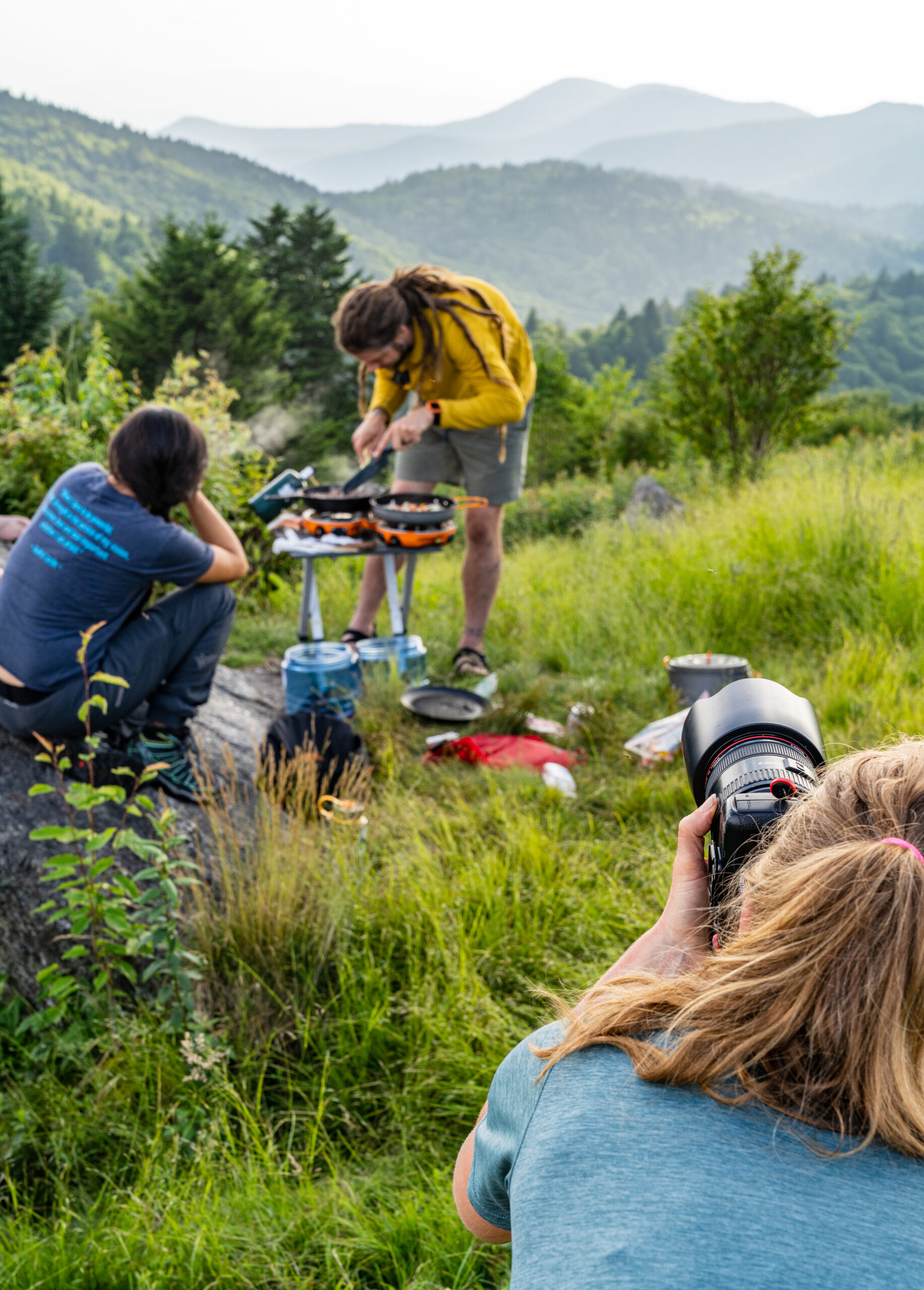
Creating Camp
Earlier this year, I was talking with my friend Steven Reinhold, founder of The Appalachian Adventure Company, about this: There is more interest in hiking and backpacking and outdoor adventure than ever, and a new generation of stories waiting to be told. And without doubt, the better those stories are told the more people will be in alignment with The AAC’s mission to share the stoke of adventure while protecting the planet – a mission I’m fully behind. Together, we decided to launch Content Creators Camp (CCC) — with support from MADE X MTNS and Eagle’s Nest Outfitters — to help equip new and aspiring content creators with skills and vision, forged in the mountains.
I’ve been in outdoor media a long time, most recently serving as Editor-in-Chief of Backpacker, and, with “content” bombarding us all day, every day, and from every angle, I know we need more of that good experiential stuff, shaped by the mountains. Those stories and images are the ones that make you need to go pack your pack and hit the trail. So we ideated CCC and planned its inaugural offering in the misty, dreamscape hills outside of one of America’s coolest and “outdoorsiest” towns: Asheville, North Carolina. Our participants ranged from guidebook authors, to social media managers, to climbing club founders. Everyone brought an open and energetic mindset to learning adventure photography and writing skills while on a killer little backpacking trip. All of us walked away buzzing with new skills, and new stories.
“At its heart, what I believe outdoor content needs to do is inspire people to get outside more, remove barriers to entry, and empower folks to do it better, more comfortably, and more often. To have more fun out there. This is the stuff that makes your life better.” — Shannon Davis
Becoming Storytellers
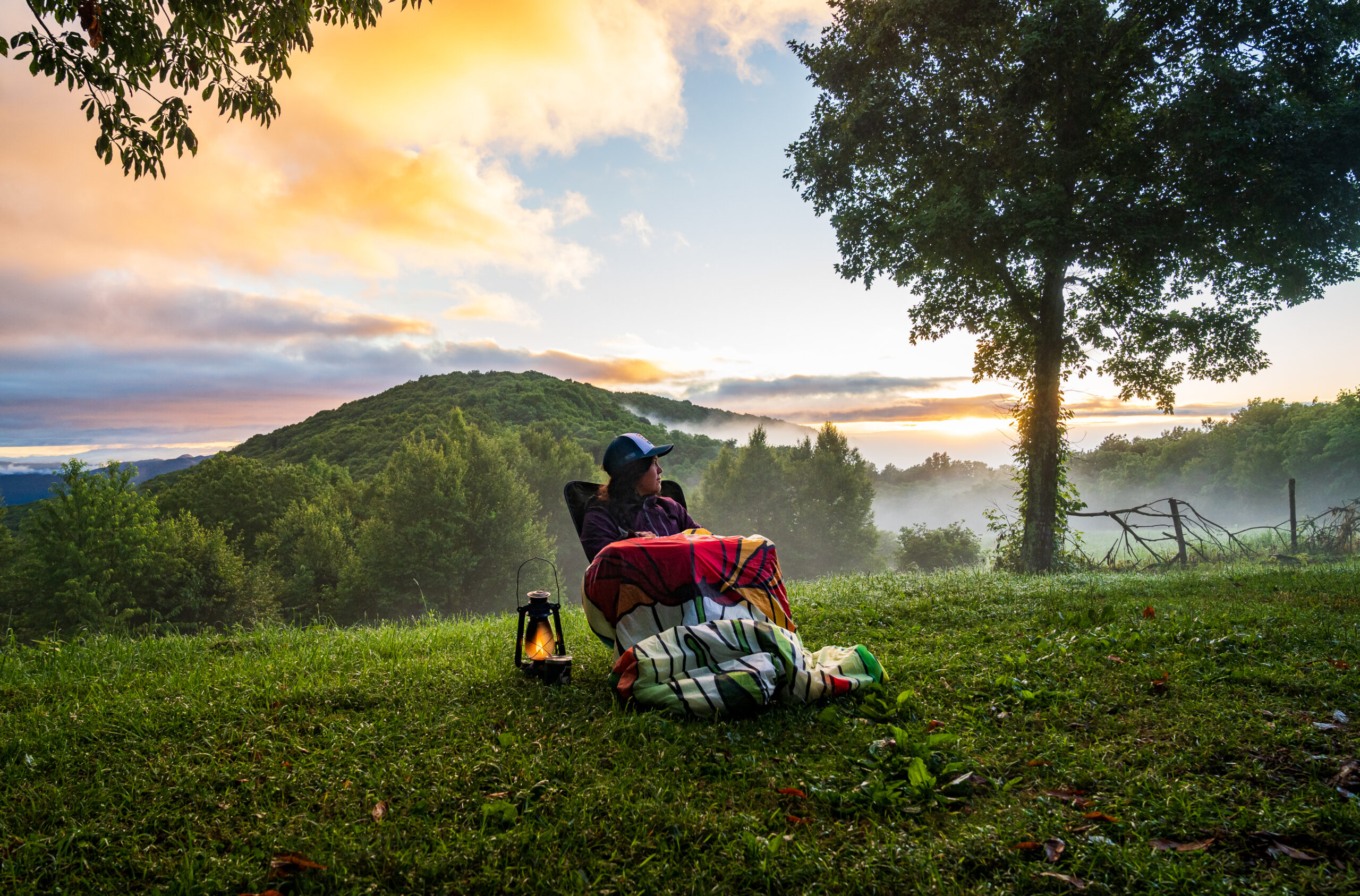
At its heart, what I believe outdoor content needs to do is inspire people to get outside more, remove barriers to entry, and empower folks to do it better, more comfortably, and more often. To have more fun out there. This is the stuff that makes your life better. To me, this makes content creation a service. If you’re a content creator who wants to share outdoor stoke, you’re in the service industry just like a mountain guide, and should strive to connect with people in relatable, useful, and human ways to light a little fire inside. We gather tinder and fuel, and light a match together. That’s what a content creator should strive to achieve through their storytelling.
Why? Depending on the nature of your goals and platform, you have various key performance indicators (KPI’s) and revenue to work toward, of course. But, beyond the metrics, we do it because we believe in the power of the outdoors to change lives. Outdoor experiences make stress go down and smiles go up. Friendships deepen, and your cardio gets a kick in the pants. We also do it because folks who get outside grow to care more about the land and to learn more about its history and best means for conserving it. We care more about nutrition and how best to fuel an adventure. We care about how our gear is made. This stuff that happens in the backcountry all translates to myriad frontcountry purchasing and ballot-box decisions that can change the world.
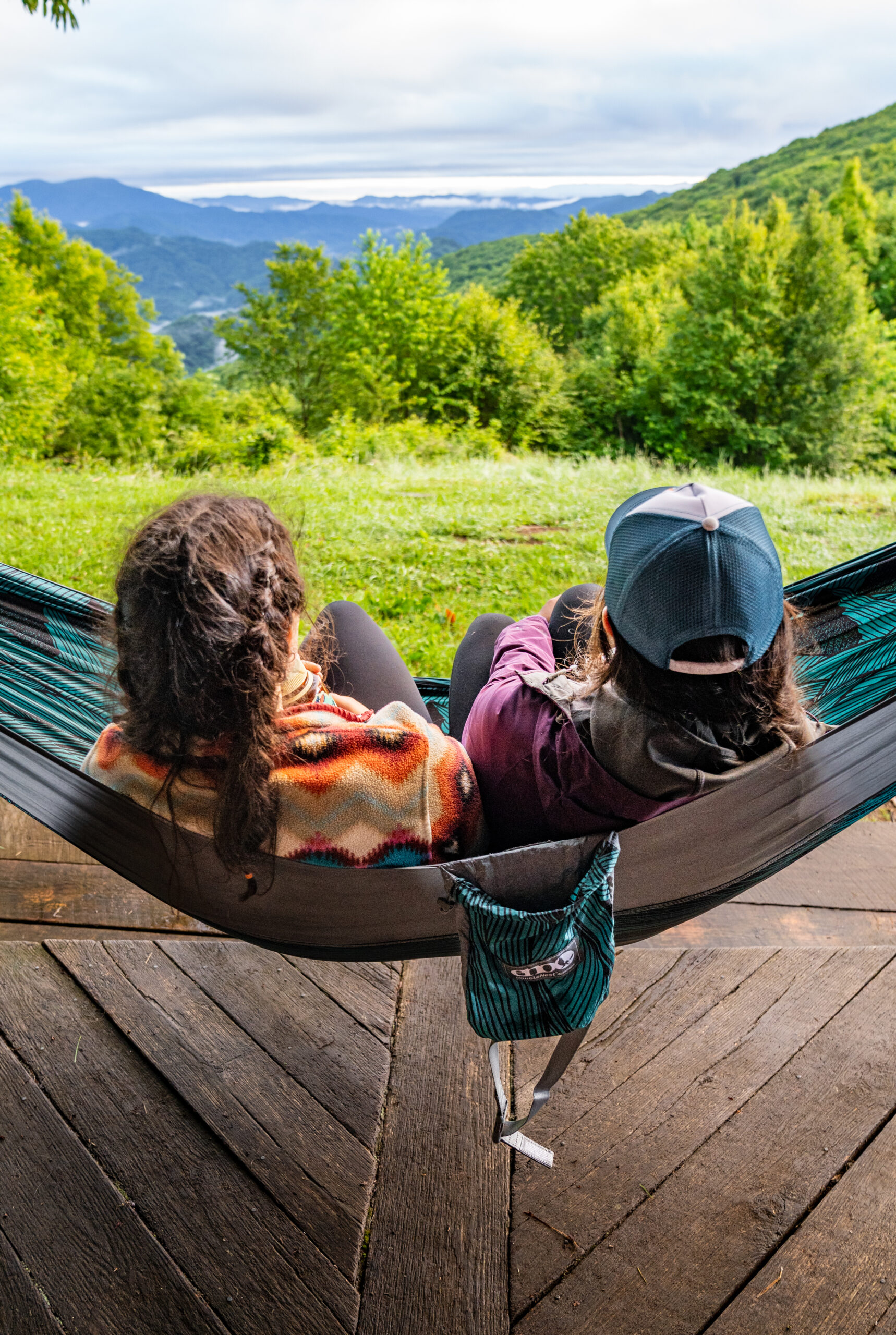
Looking Ahead
How do you pull off that grandiose stuff? Well, you can come along on next year’s CCC and get immersed in ideas with which to fill your bag of tricks. Also, you can do one simple thing: go have real experiences in the wilderness. Go and make mistakes, and learn how not to make them next time. Learn for yourself just when you’ll need to rock gaiters, and when you won’t. Go and have successes, and learn how to have more. Become a subject matter expert. Go and find out how you are made by these mountains.
The first Content Creators Camp crew from left to right; Danielle Johnson, Avery Hayden, Rose Goodbread, Jessie Johnson, Shannon Davis, Lee Trebotich and Steven Reinhold
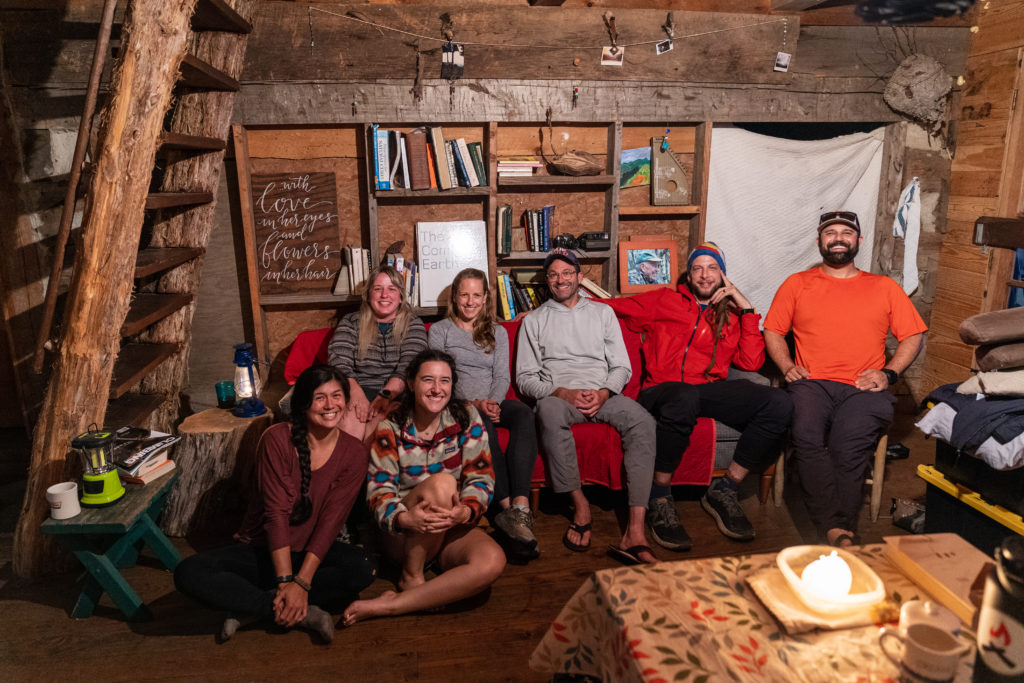
The Appalachian Adventure Company was founded to share the stoke of adventure while protecting and preserving our planet. Founder Steven Reinhold, a native of Waynesville, NC who now resides in Sylva, NC, is an avid explorer and adventure philanthropist who has pursued his passions around the globe. He created the #trashtag cleanup effort, has represented Big City Mountaineers’ Summit for Someone Program and served as Backpacker Magazine’s Brand Ambassador. Steven founded The Appalachian Adventure Company in 2014 after climbing several of America’s most iconic peaks with the industry’s leading guide services. On those original expeditions he realized that mountain guides are the coolest people on the planet and that he found his best self while climbing mountains. The AAC was founded to share the stoke of adventure with everyone! Find out more at TheAACSite.com
Shannon Davis is a former Editor-in-Chief of Backpacker and Climbing. His family tree hails back to the mountains of WNC. He now lives in Lyons, Colorado on the banks of the North Saint Vrain Creek with his son, doggo, and a few chickens.
Adventure Nerds & Hellbender Paddleboards
MADE BY MOUNTAINS MINI STORY
Adventure Nerds & Hellbender Paddleboards Collaboration
Through Waypoint Accelerator, I met an incredible group of outdoor industry professionals. The team at Hellbender Paddleboards was the first outdoor brand to take a chance on Adventure Nerds. I pitched them the idea of a guidebook collaboration, and they loved it. Our goal was to celebrate a great paddling destination in Western North Carolina that was accessible for most people and show how Hellbender Paddleboards could be used for an overnight adventure.
By Nate Trappe — Founder of Adventure Nerds
Two start-ups meet at the Waypoint Accelerator program in Asheville, NC, and launch
Lake James Paddling Adventure Guide Notes
Outdoor adventure publishing company Adventure Nerds and Asheville-based inflatable paddleboard manufacturer Hellbender Paddleboards recently announced a new guidebook for paddling adventures in North Carolina. Lake James Paddling Adventure Guide Notes is a 31-page interactive guidebook that contains hyper-specific information about planning an overnight paddling adventure and the natural and cultural history of Lake James. The book features dynamic photographs of Hellbender paddleboards in action and celebrates a collaboration of two brands, celebrating the amazing paddling opportunities in North Carolina and reaching new audiences with the tools to get outside more.
The trick to starting anything new is finding a way for optimism to outweigh uncertainty. When I walked into the conference room for the first session of the Waypoint Accelerator program I was filled with uncertainty. I still am. One of the joys of being an entrepreneur is seeing uncertainty as an opportunity to create something new.
I met the team from Hellbender Paddleboards in November 2021. We sat in the conference room and introduced ourselves and our dreams for our fledgling companies. It’s odd to lack confidence and feel optimistic at the same time. But there we were, taking a big step on our startup adventure. The Waypoint Accelerator program created a structure and a support system to build our confidence and stoke our optimism. The outdoor community of Western North Carolina has been amazingly supportive, and something special happens when a bunch of other people believe in your idea with you.
That’s why I was excited to be a part of Waypoint. I wanted to make connections with others and discover people in the outdoor industry that might see the potential of Adventure Nerds. I founded Adventures Nerds to increase access to adventure and create new opportunities for the outdoor community. Before Waypoint, I quietly published my first Guide Notes, a digital guidebook for multi-day adventures. It was the first step in my plan to create the worst business model ever – a low-cost, highly-produced, hyper-specific item that only appeals to a small demographic. However, the person buying Guide Notes and planning an adventure is also the ideal customer for other outdoor brands. All that was left to do was to figure out how to grow a three-sided marketplace for writers, customers, and outdoor brands that only works with scale.
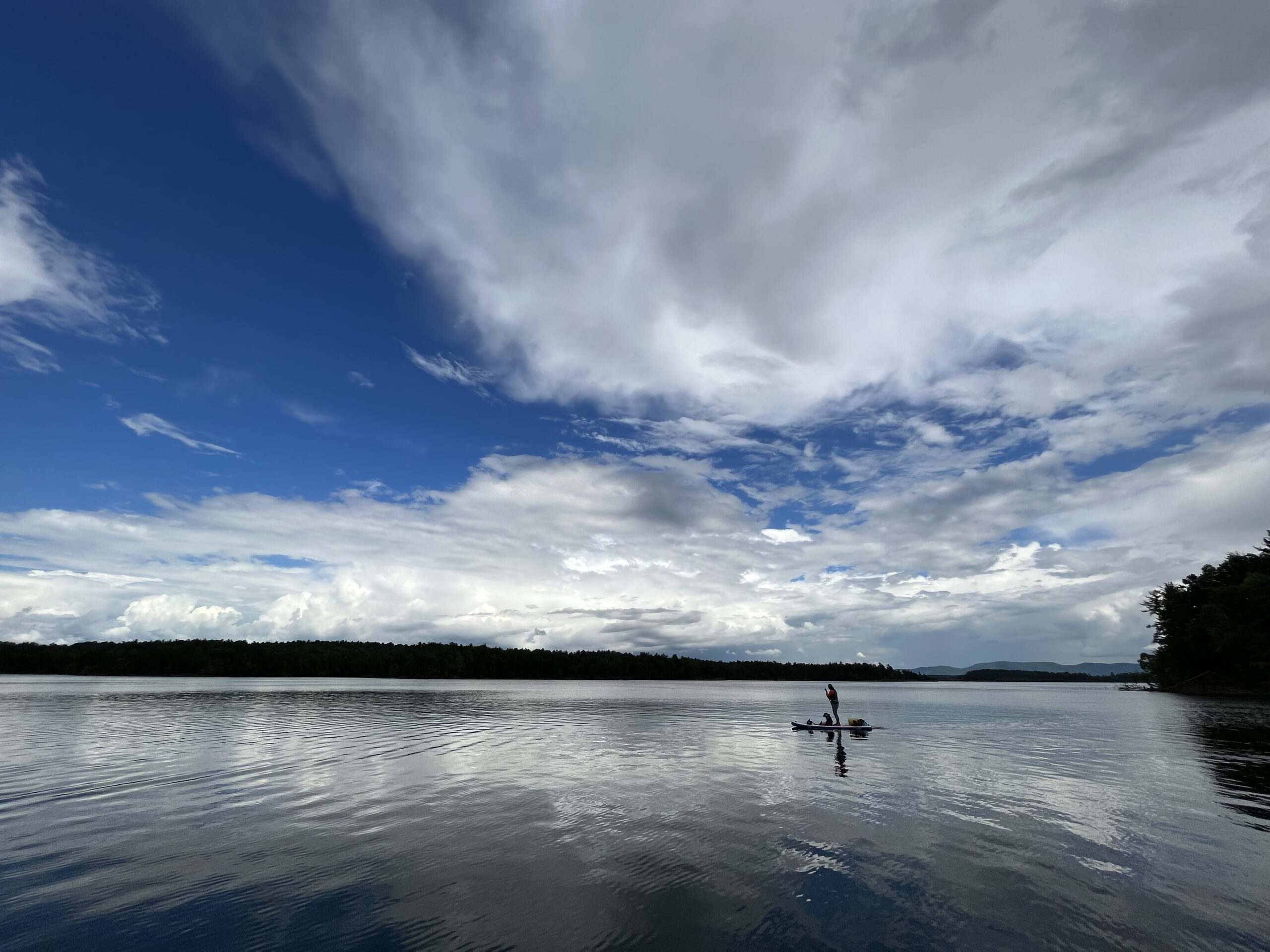
Taking a Chance
Through Waypoint, I met an incredible group of outdoor industry professionals. The team at Hellbender was the first outdoor brand to take a chance on Adventure Nerds. I pitched them the idea of a guidebook collaboration, and they loved it. Our goal was to celebrate a great paddling destination in Western North Carolina that was accessible for most people and show how Hellbender Paddleboards could be used for an overnight adventure. Then, Adventure Nerds borrowed a couple of Hellbender paddleboards and went on an adventure. The result was an interactive, digital guidebook that featured Hellbender Paddleboards in photographs throughout the book.
“Unless you’ve done it or have a friend who’s done it, it is time-consuming to find, research, and plan an overnight adventure. This guidebook is the result of our common passion for paddling in Western North Carolina and a desire to help more people get on the water. Lake James was the ideal location for a beginner-level overnight paddling adventure that demonstrated the stability and durability of Hellbender paddleboards.” — Nate Trappe
Supporting Future Growth
We recently published the book and are excited to use it as a proof-of-concept example to connect with other outdoor brands to create more guidebook collaborations. We are building a library of mini guidebooks for outdoor adventures and we believe there is an enormous opportunity to create a mutually beneficial network of outdoor brands, outdoor creatives, and customers that share a common love for adventure. The Adventure Nerds and Hellbender Paddleboards guidebook collaboration was an important first step in launching a business model that will support our growth.
We are a small company, and the future is uncertain, but we have over 20 guidebooks in production for 2022, and we are thinking big. I know we will continue to meet more people that believe in our mission of increasing access to adventure. It won’t be easy, creating something new never is, but it all starts with finding a few people to take a chance on an idea and keep the optimism alive. A big thanks to the teams at Waypoint and Hellbender Paddleboards for taking a chance on this wild idea with us. Who’s next?
Adventure Nerds is a global network and marketplace for hyper-specific guidebooks about multi-day outdoor adventures. We make it easy to find and plan new adventures. Adventure Nerds is on a mission to increase access to adventure. We believe in elevating the value of adventure, inspiring action, and supporting a diverse and inclusive outdoor community. Since 2022, Adventure Nerds has hired an ever-expanding roster of local and global outdoor writers to create mini guidebooks about multi-day backpacking, bikepacking, canyoneering, paddling, skiing, and surfing adventures. Contact Adventures Nerds to discuss a guidebook collaboration that features your brand on an adventure near you. You can purchase your copy of “Lake James Paddling Adventure Guide Notes” today at AdventureNerds.com.
Hellbender Paddleboards’ mission is to create a better paddleboard for the rivers and lakes of Western North Carolina. Our paddleboards are built for adventure, designed for stability and durability, and come with an excellent warranty. Hellbender paddleboards come in multiple sizes with innovative features and a focus on sustainability. Learn more at HellbenderPaddleboards.com.
The Waypoint Accelerator program is designed to help early-stage outdoor businesses and entrepreneurs map out and reach the next waypoints in their growth journeys. This program, the first of its kind in the East, is recruiting for its 4th cohort, after helping nearly 30 past participants grow their revenues, expand their teams, accomplish huge projects, and realize big dreams. Through a collaborative network of peers and mentors, in-depth training and coaching, access to growth capital, and dedicated time set aside to focus on the future of the business, Waypoint provides companies with the support, knowledge, clear vision, and resources needed to thrive. More information and program application at WaypointAccelerator.com.
Leah Wong Ashburn
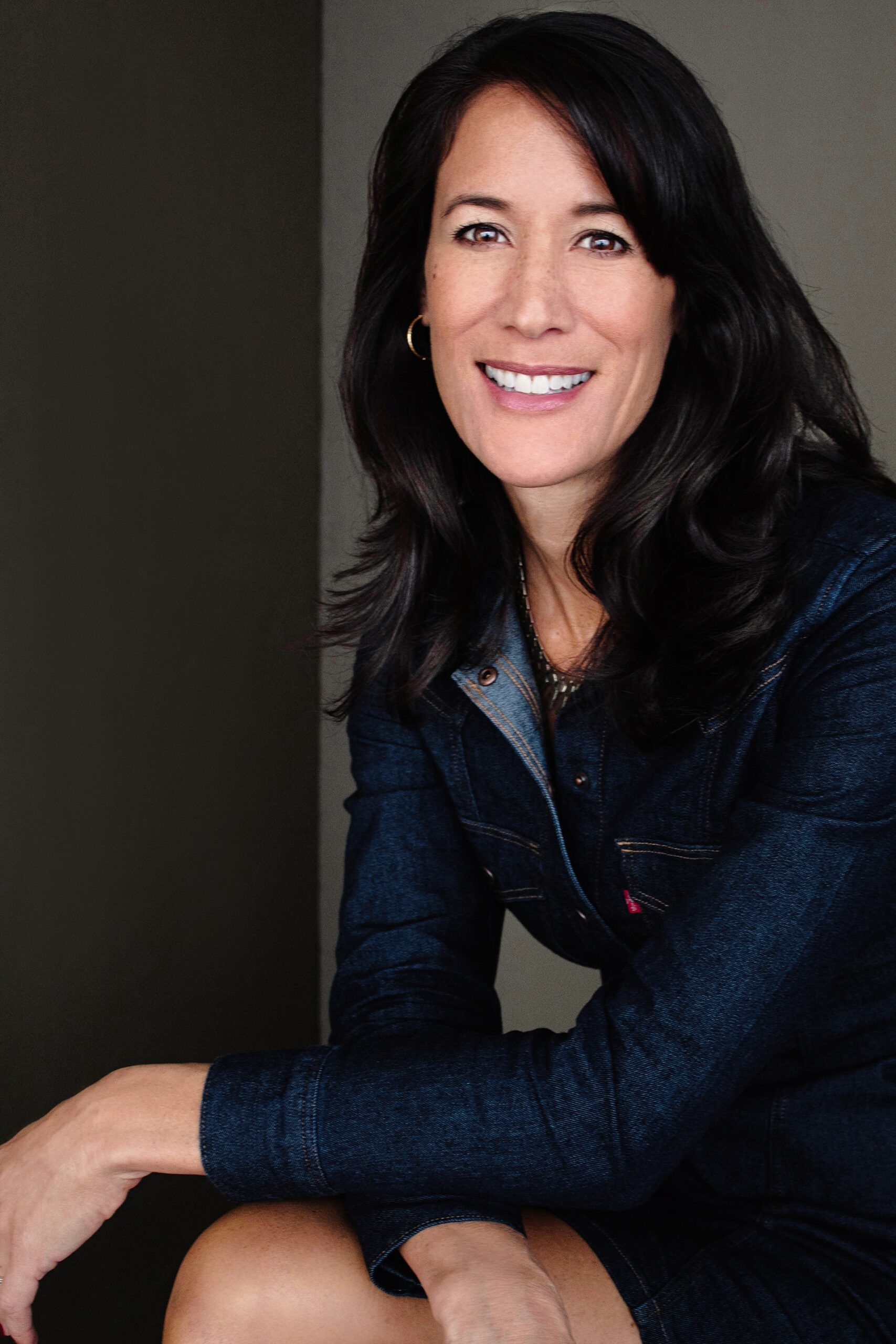
Made By Mountains Story
Leah Wong Ashburn
The craft beer industry thrives in WNC because the mixture of natural beauty and quality of life ties so beautifully into the region’s love of great food and drink.
Leah Wong Ashburn is the CEO of Highland Brewing, Asheville’s first legal brewery since prohibition. Her father, Oscar Wong, founded the company in 1994 in the basement of Barley’s Taproom. They’ve since grown to occupy a large brewing facility nestled on more than 40 acres of land—their own mini outdoor paradise. From the beginning, they’ve been inspired by and committed to protecting the region’s amazing natural resources.
Leah Wong Ashburn is the CEO of
Highland Brewing Company
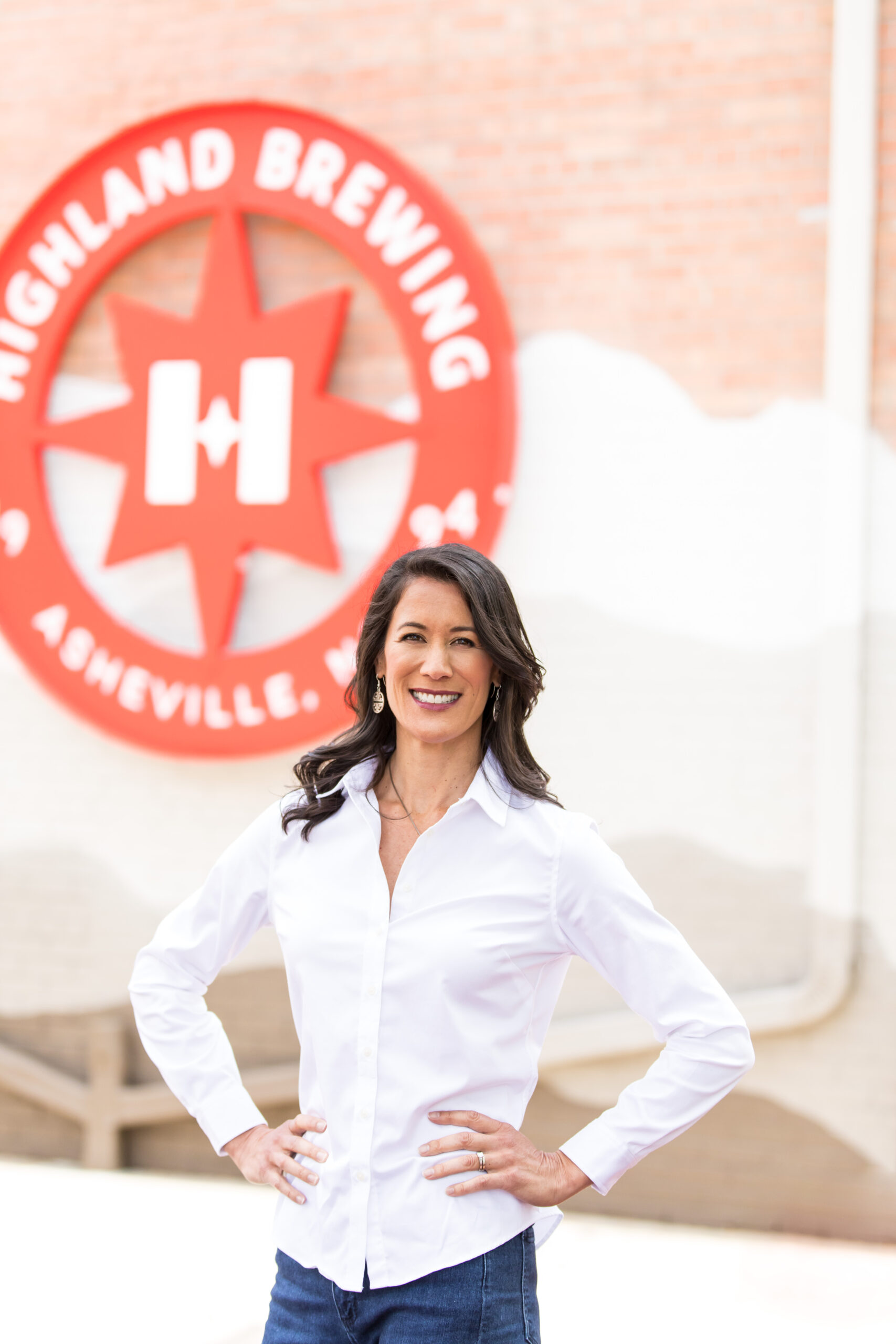
On Choosing WNC
My parents fell in love with Asheville on their first visit: the mountains, the people, and the culture really spoke to them. The history of creative makers runs so deep in our area that I think Highland Brewing was born by these inspiring surroundings. Craft beer is really all about innovation and creativity.
The craft beer industry thrives in WNC because the mixture of natural beauty and quality of life ties so beautifully into the region’s love of great food and drink. As a part of a recent meeting, we took our entire sales team for a hike to Craggy Pinnacle on the Blue Ridge Parkway. We really wanted to do something outside so that our reps from across North Carolina, South Carolina and Tennessee could really understand why we’re here in Western North Carolina, and what is so amazing about it.
It was wonderful to see their delight at the wildlife and the 360-degree views from Craggy Pinnacle. But for us, this is just everyday life. I have two incredible mountain views just on my ten-minute commute to work everyday! That experience allowed our staff to live a little chapter in our story and helped them to better understand our culture—and even our branding and packaging.
On Difficult Decisions
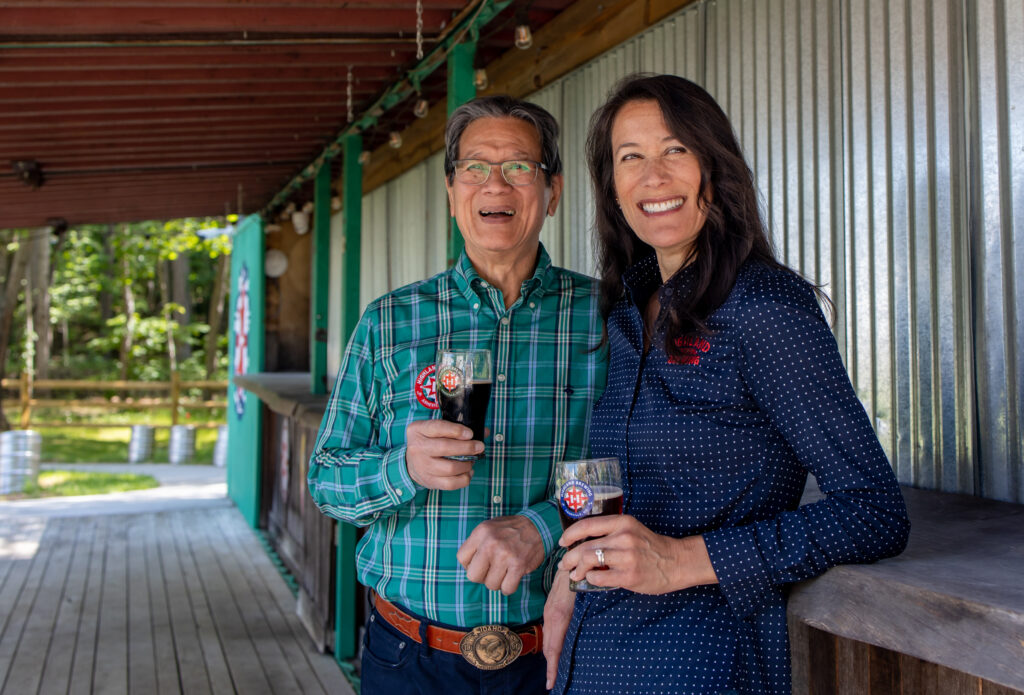
In 2018 we made the decision to update our brand. It was terrifying. Here I was making changes to my dad’s 20-year-old company. But our beer portfolio had evolved, and we wanted our brand to reflect that. We were able to work with a designer who had grown up in Black Mountain. He was not only familiar with our area; he knew exactly where we started and what we’d become. Referring to our original brand, he said, “You guys are not Scottish. You are pioneers!” That was really the key.
Our logo now revolves around a simplified compass to capture that pioneering spirit. When I saw it, I said, “This is right.” I knew it was a reinvigorated brand rooted in the same place, but our identifying characteristic was moving forward. That really spoke to our staff. They were like, “Let’s keep creating. Let’s keep innovating. Let’s keep forging a path.” Our branding now reflects the brand that we are today and will be tomorrow.
We’ve also designed our packaging to reflect WNC’s beautiful natural resources. All of our year-round beers feature mountains on the packaging, and our seasonal beers are tied to something of regional significance, be it mountains, flora, or fauna. I think that beer and the outdoors complement each other beautifully. Enjoying a great beer and exploring the outdoors are both celebratory experiences. They give you a feeling of connection.
I think being a woman-led company has made women more comfortable applying to work here. 40 percent of our staff and nearly 50 percent of our management are women. That percentage of women in management is rare in general, but in craft beer, it’s almost non-existent.
On Being Immigrant-Owned And Woman-Led
It’s great to stand out. When Highland was founded in 1994, we stood out because we were the only brewery. We’re now part of a huge community, but we still stand out because of our diversity. I think being a woman-led company has made women more comfortable applying to work here. 40 percent of our staff and nearly 50 percent of our management are women. That percentage of women in management is rare in general, but in craft beer, it’s almost non-existent.
On Beer And The Outdoors
My earliest memories of coming to Asheville are of visiting my parents when they owned a place that they called “The Farm.” When I pulled up and opened my car door, the air was different. I couldn’t help but take a huge deep breath of this mountain air. That is so special, and it’s easy to lose.
People often make the decision to move to Western North Carolina before they’ve even decided what to do for work. It’s our outdoors that draw them.
People often make the decision to move to Western North Carolina before they’ve even decided what to do for work. It’s our outdoors that draw them. I think that says a lot about what this area has to offer. There people care a lot about our natural resources – and they also care about protecting those resources.
We’ve always operated with a long-term view, and conserving our 40-acre property is a big part of that approach. We recently hired a full time land management professional. With his help, we’re working to control invasive species and develop trails that complement the land—not destroy it. We’re also creating opportunities to go outside, be it to play volleyball or disc golf, or to walk trails. That’s important because when you bring people to the outdoors, they care more about it.
On Being Made By Mountains
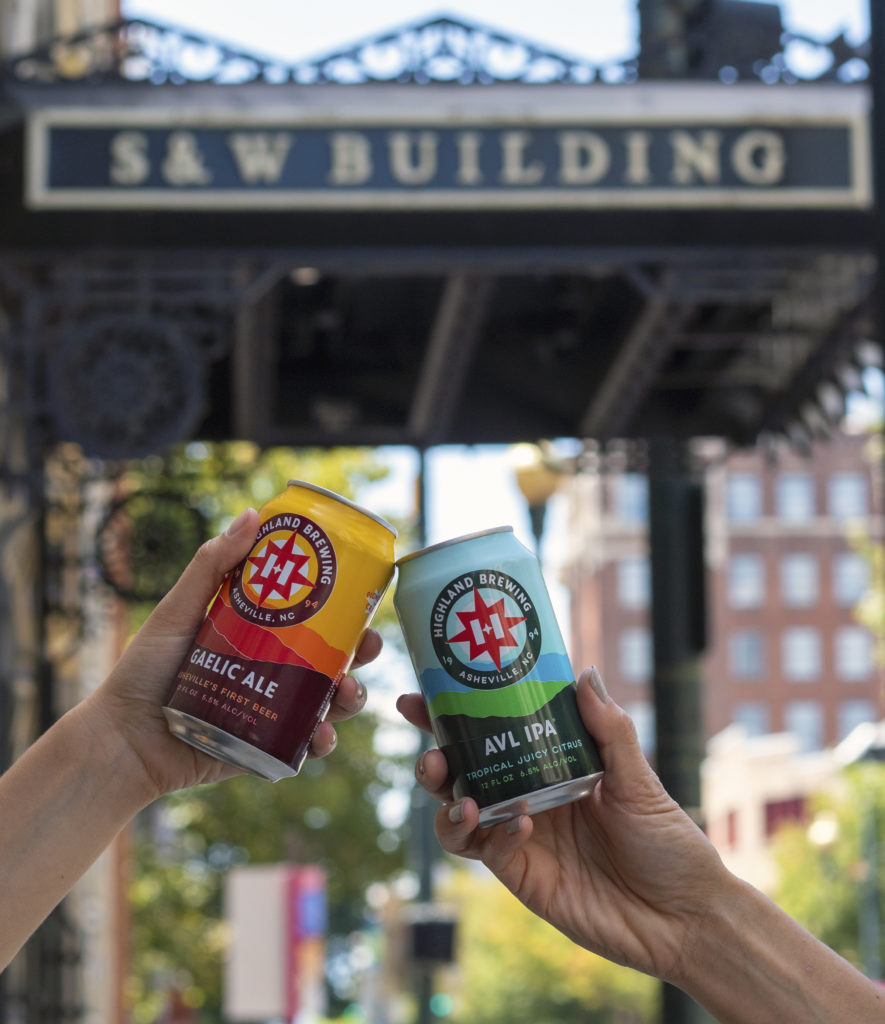
Getting outdoors in WNC is my mental health, centering, recovery, and inspiration. One of my favorite things to do is to go to Bent Creek by myself and run. There’s just something so refreshing about that experience: the quiet, the fresh air, and being around others who are enjoying the same things.
I feel like I’m a better person living here. I give credit to the people who live here and the culture of this place, but that’s all based on the natural beauty that we have. You can’t have one without the other. I’ve felt inspired to dive into who Highland is, what we stand for, and what we can become because of our surroundings.
